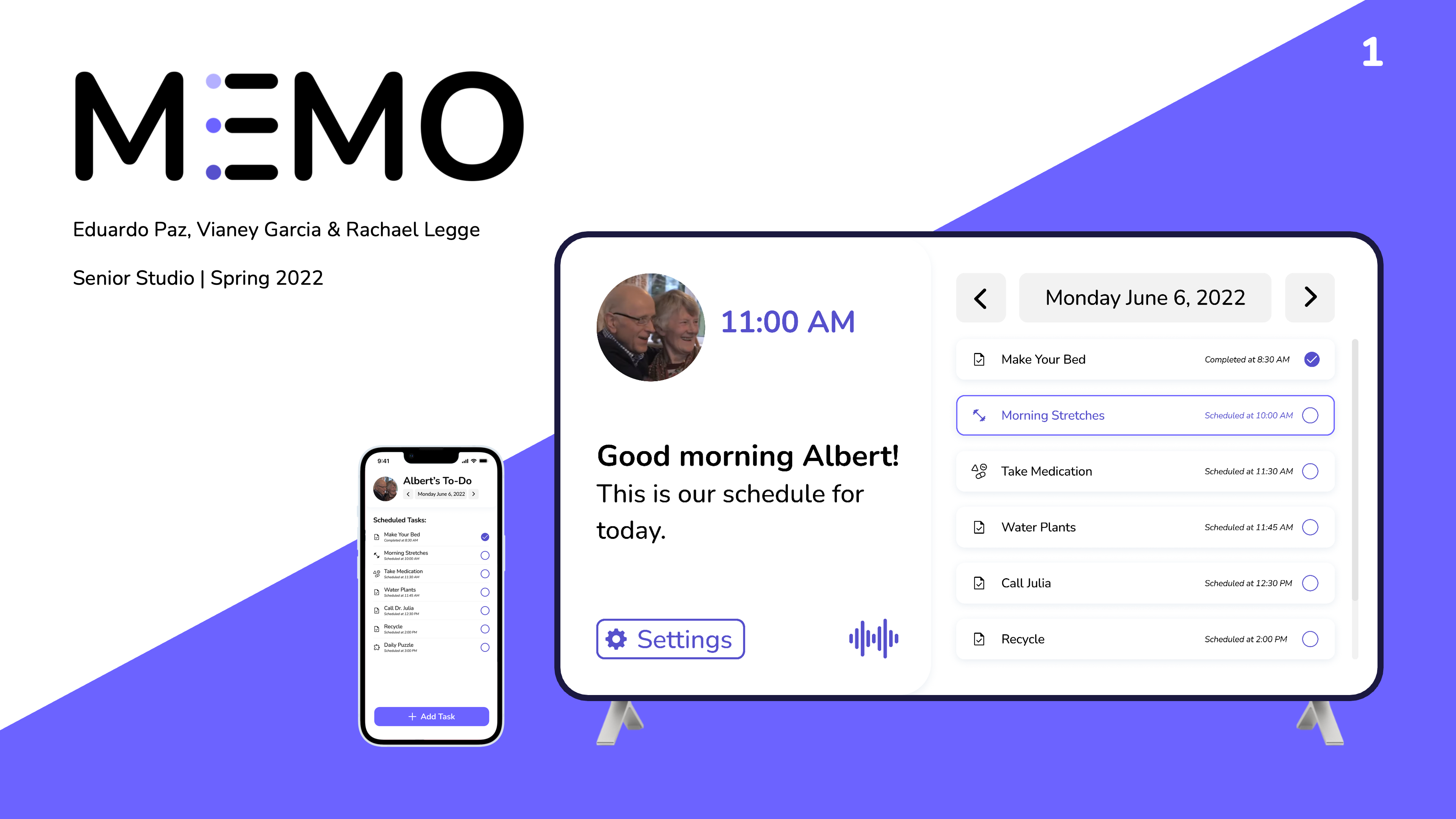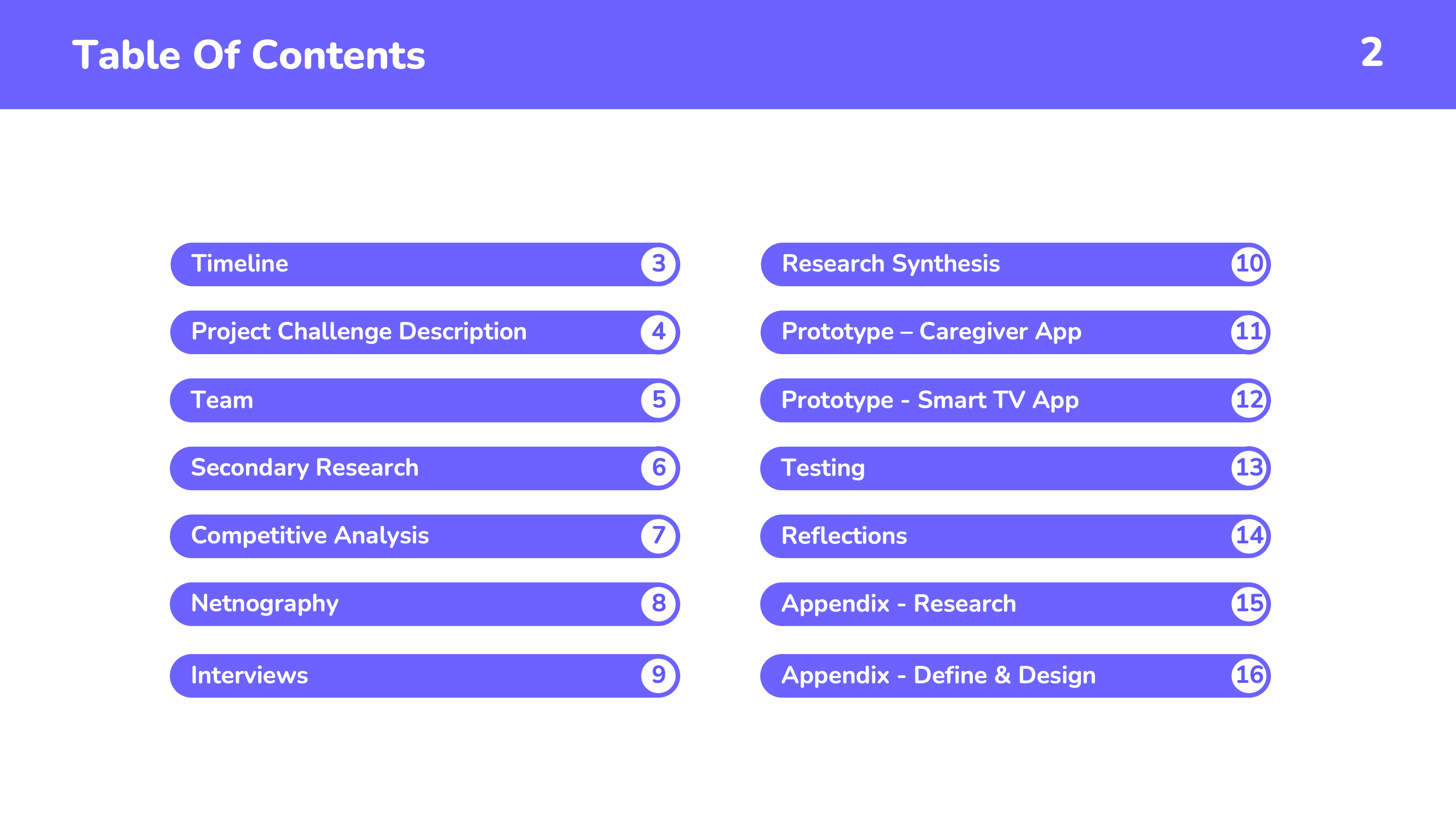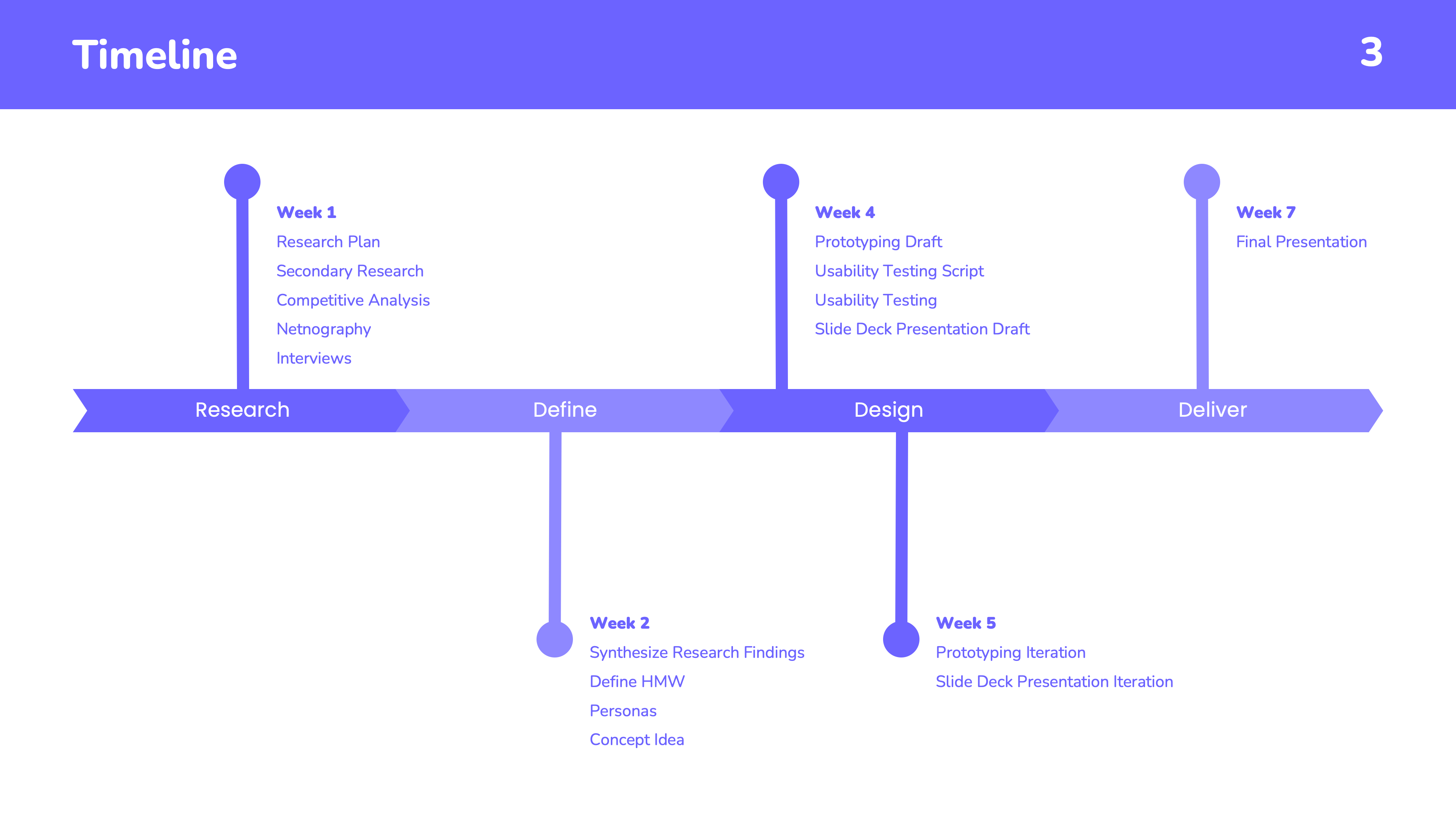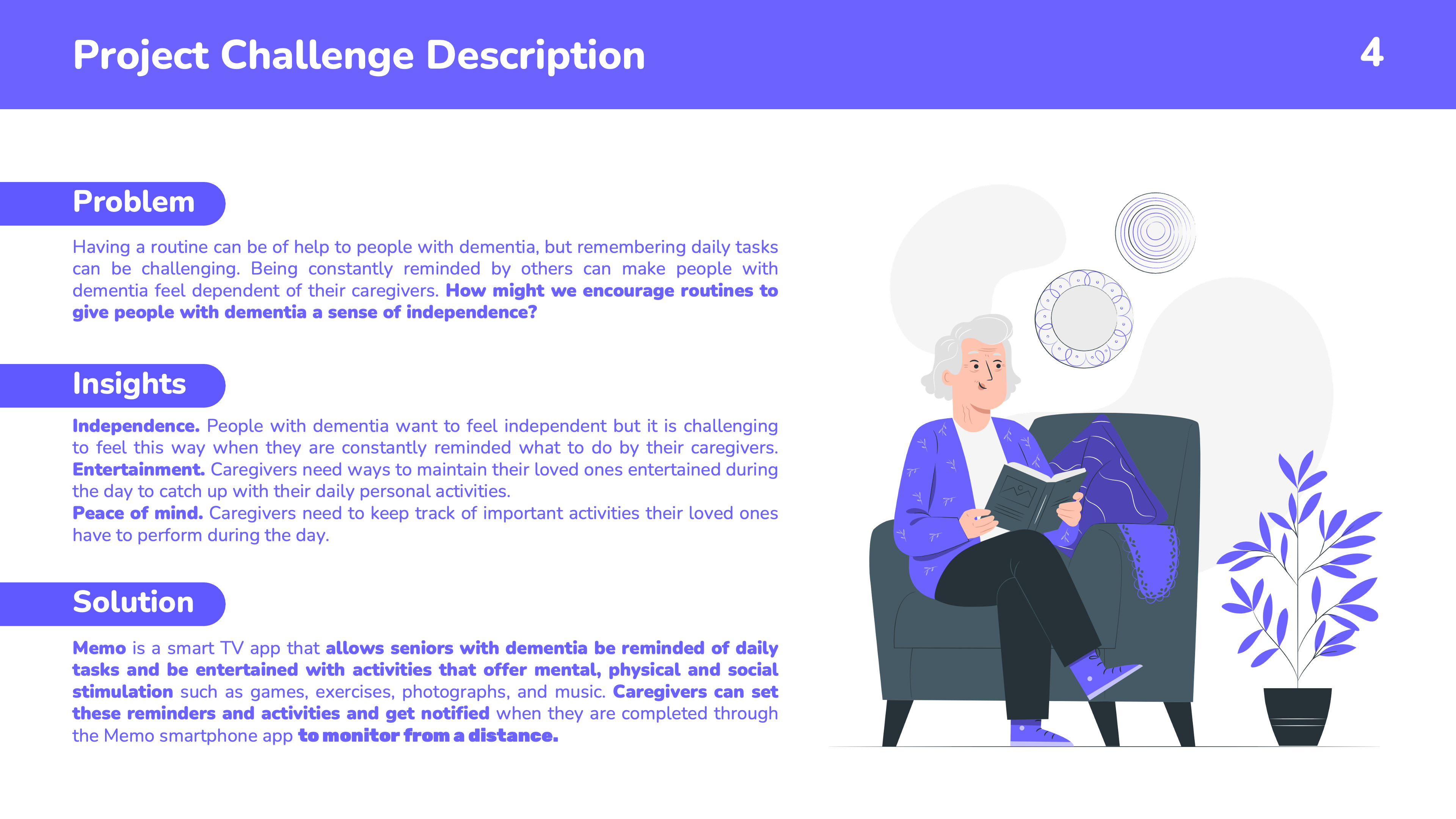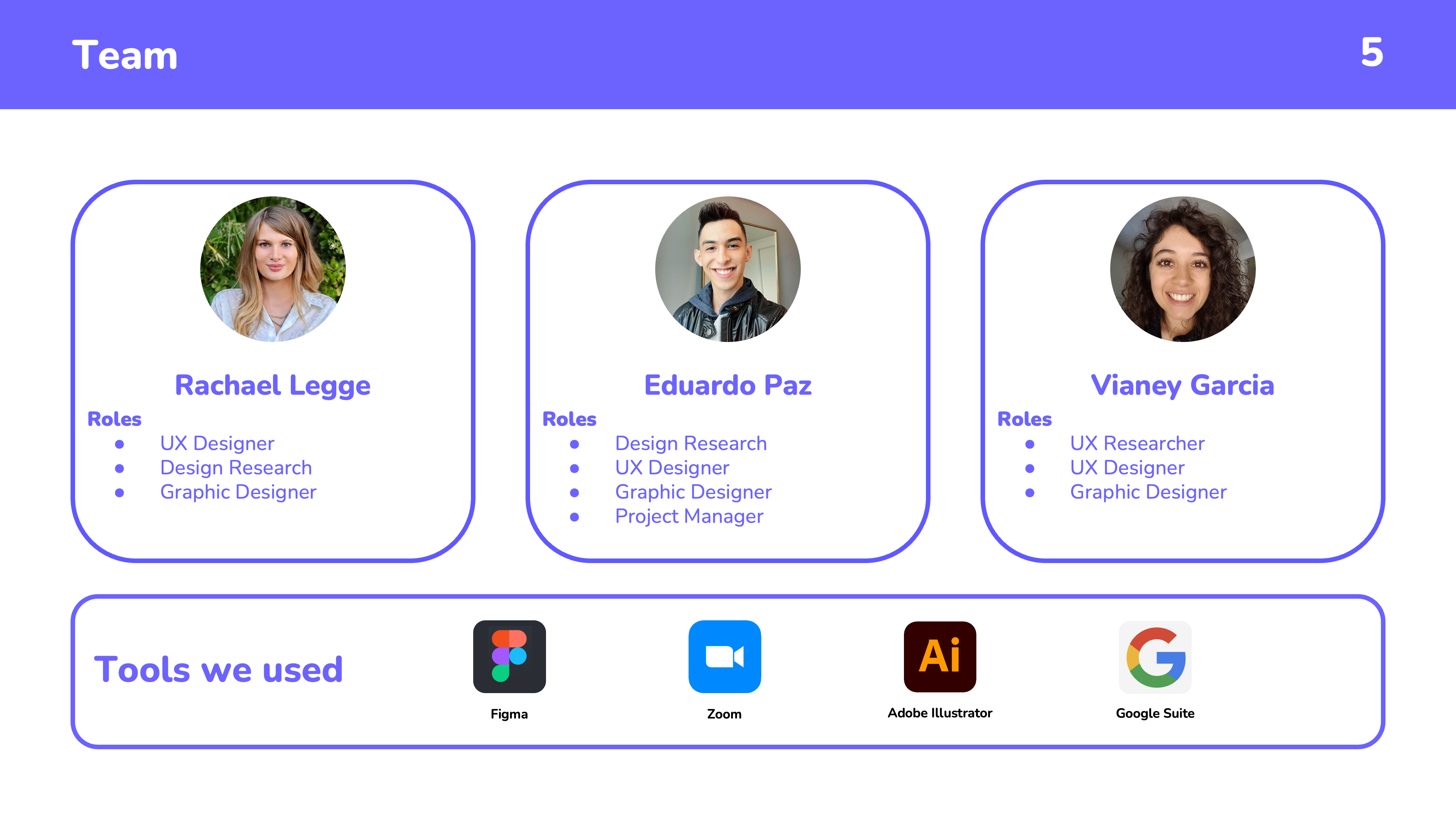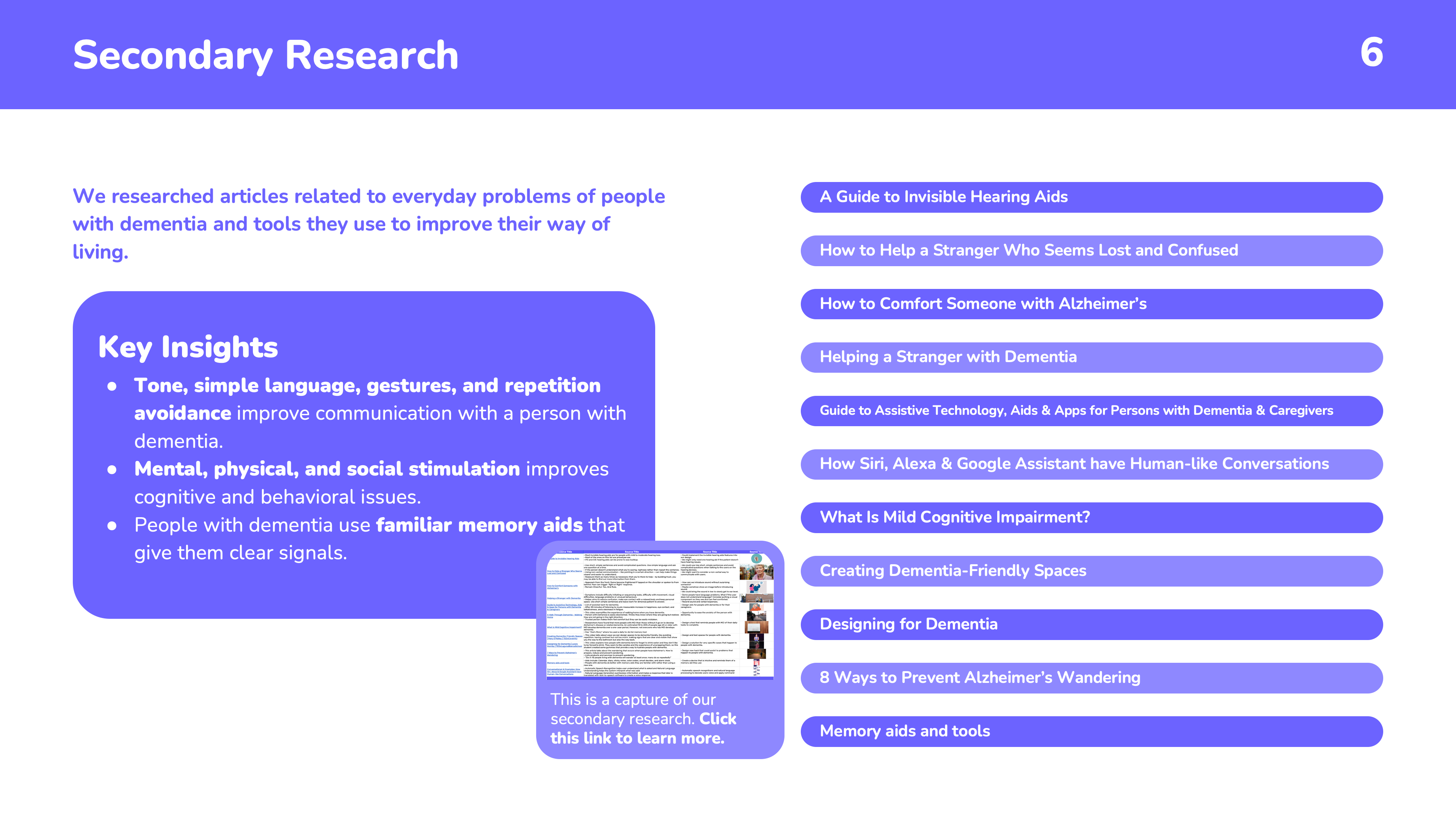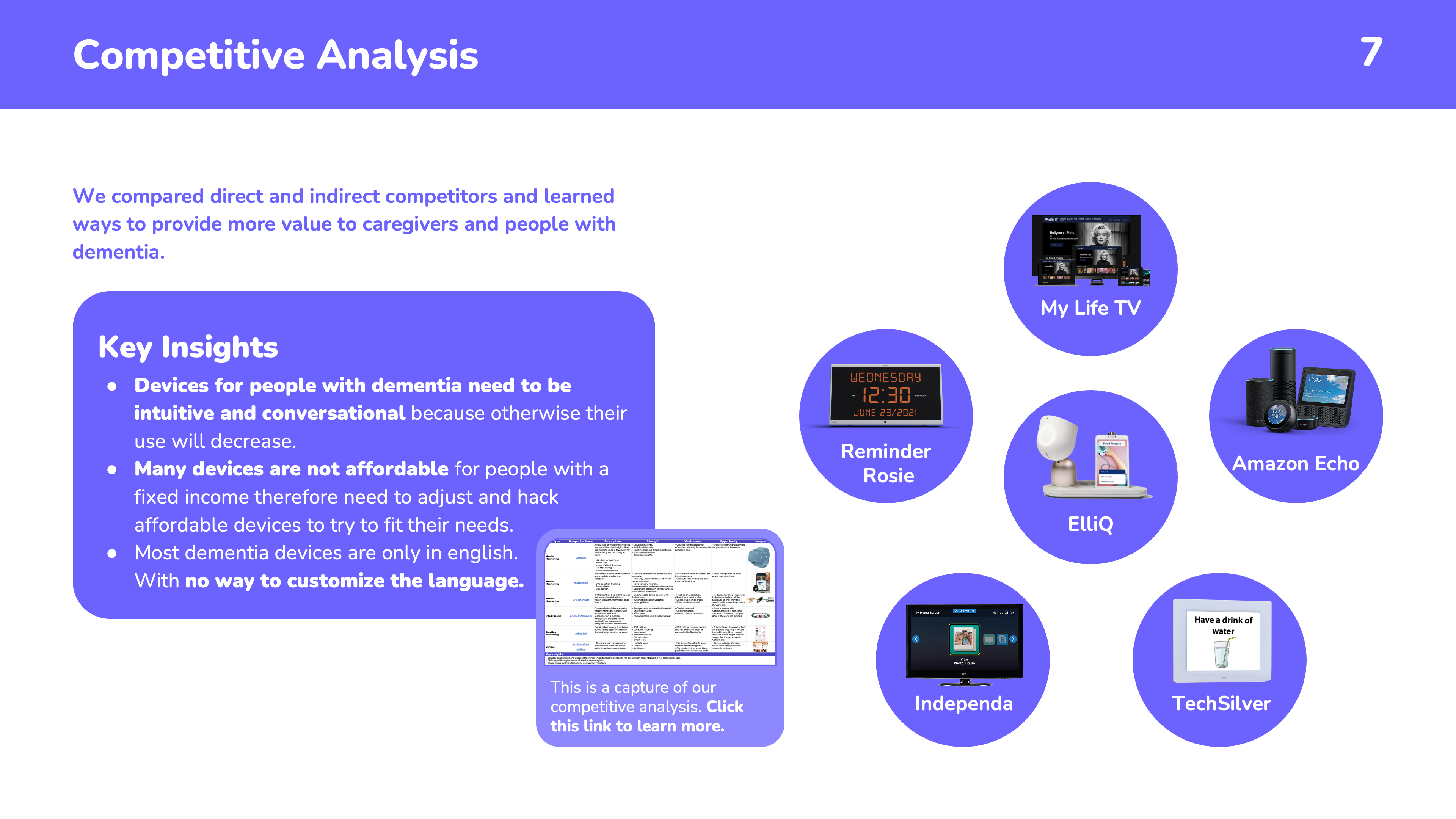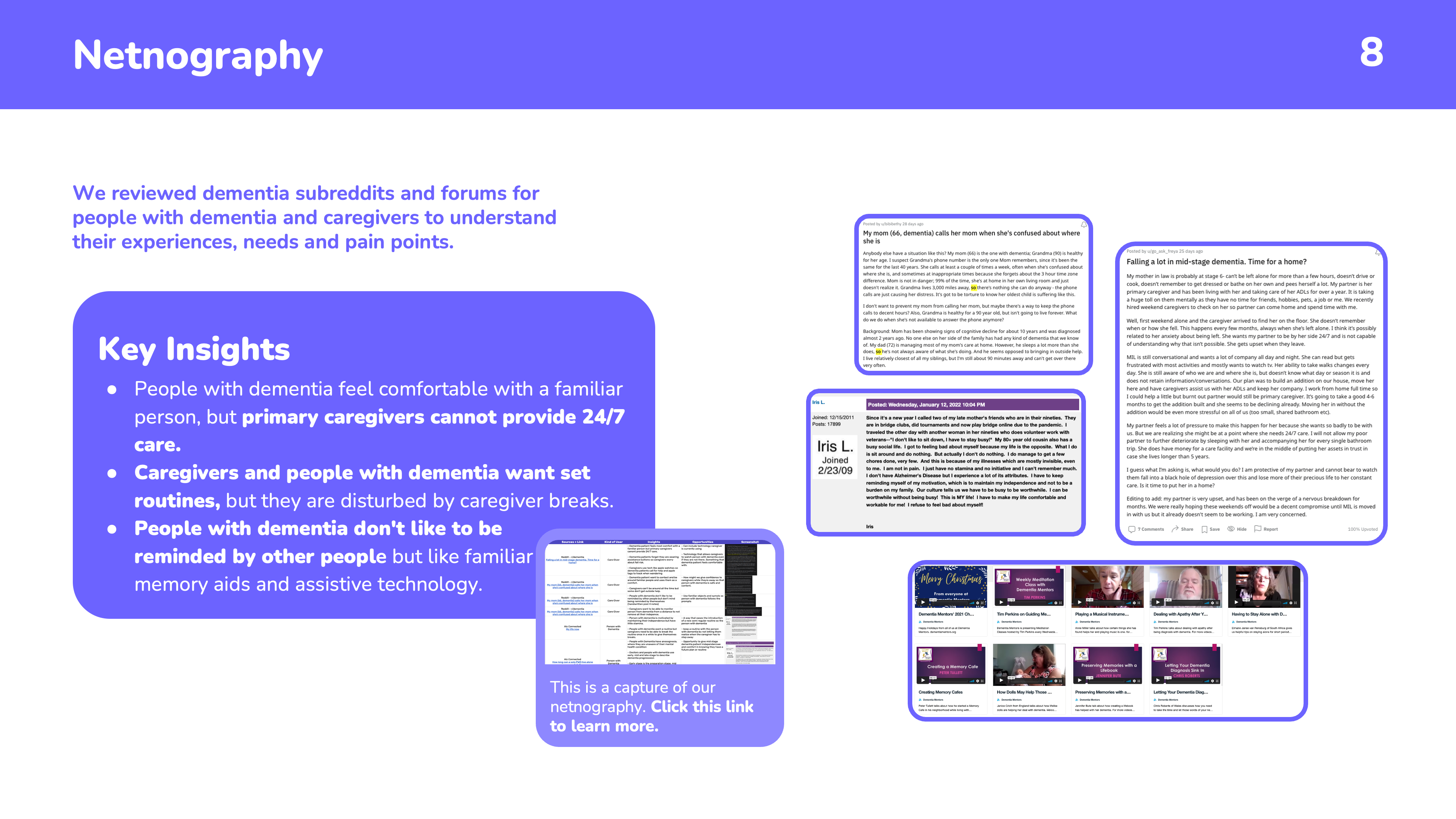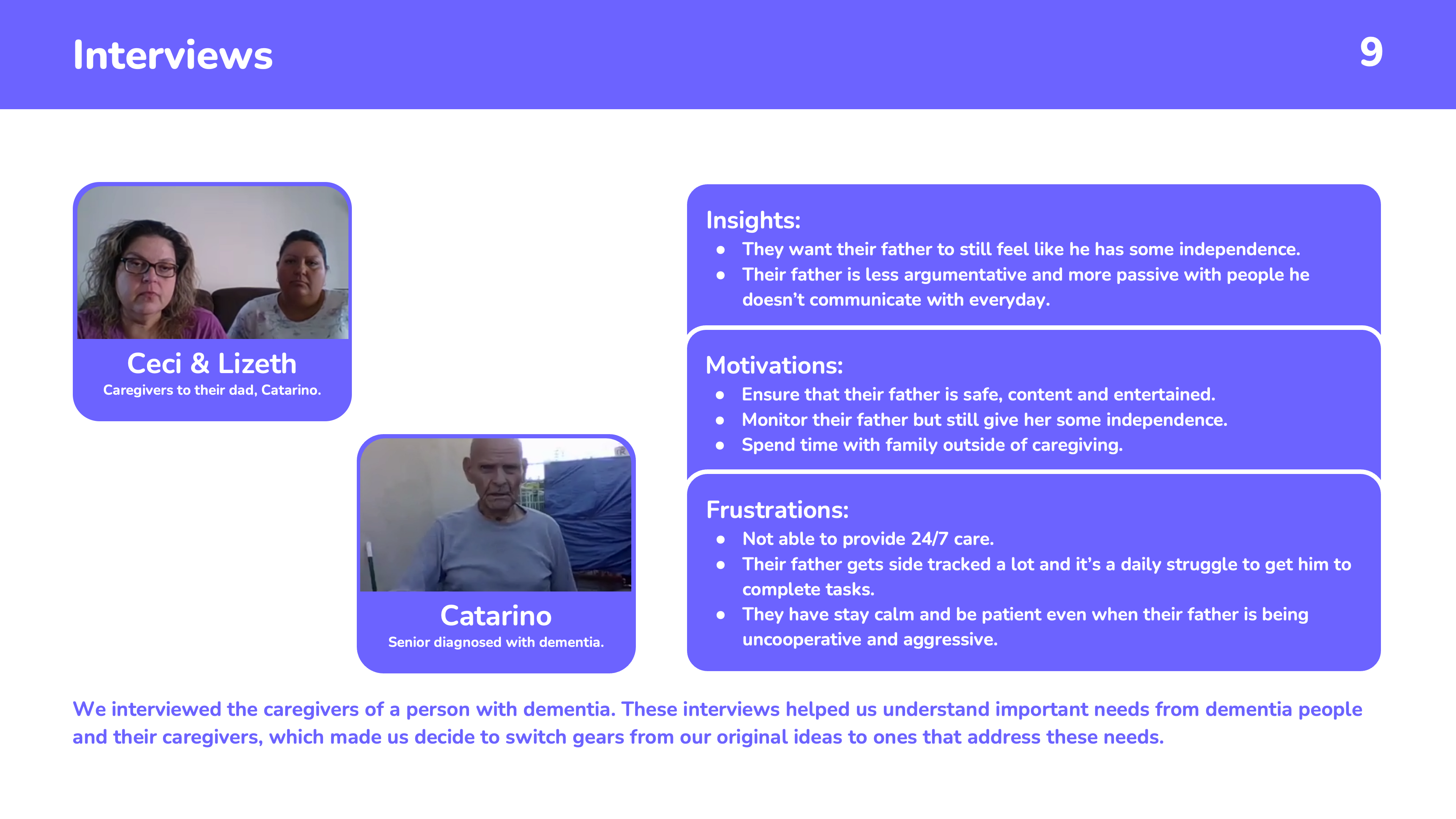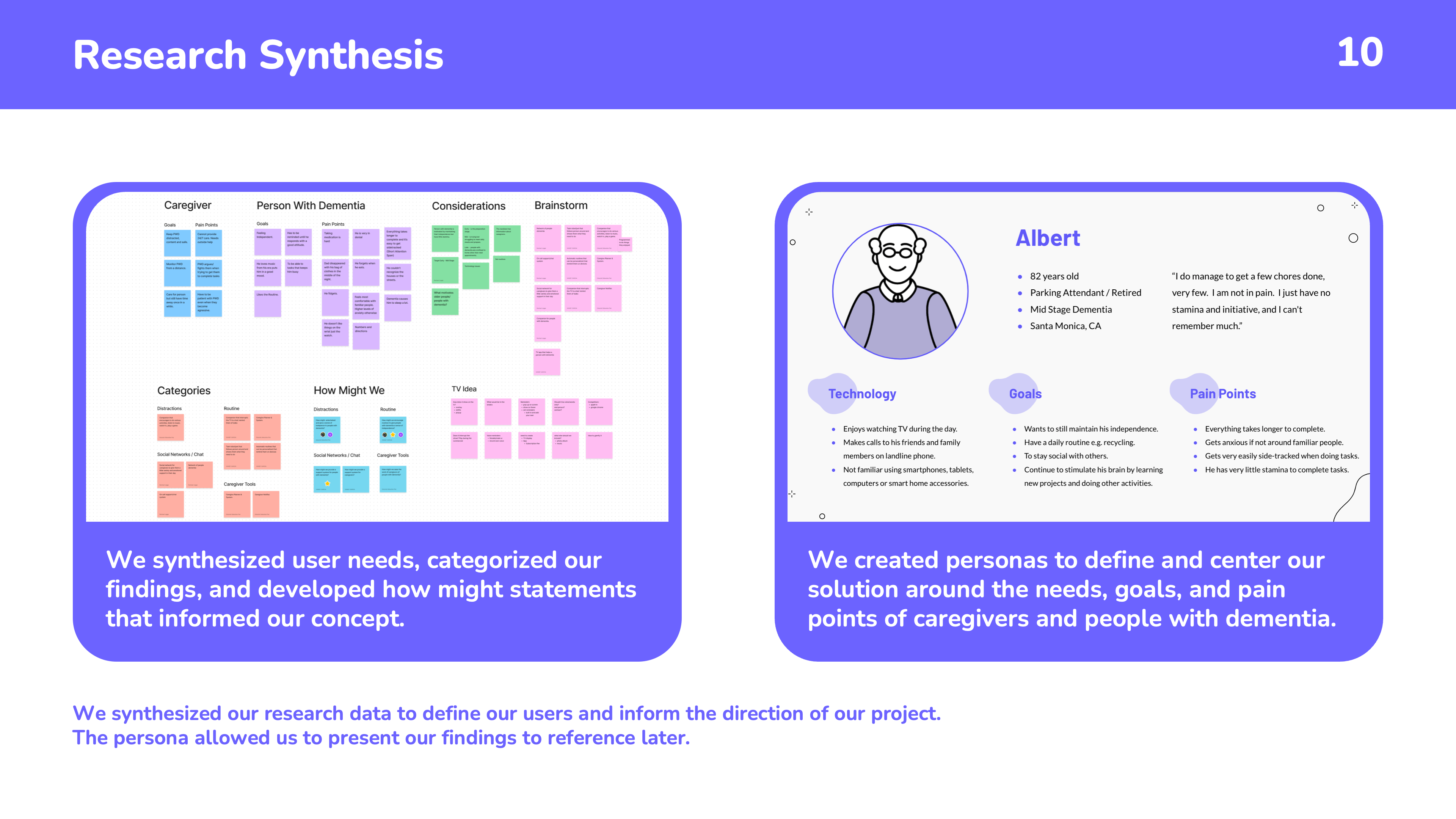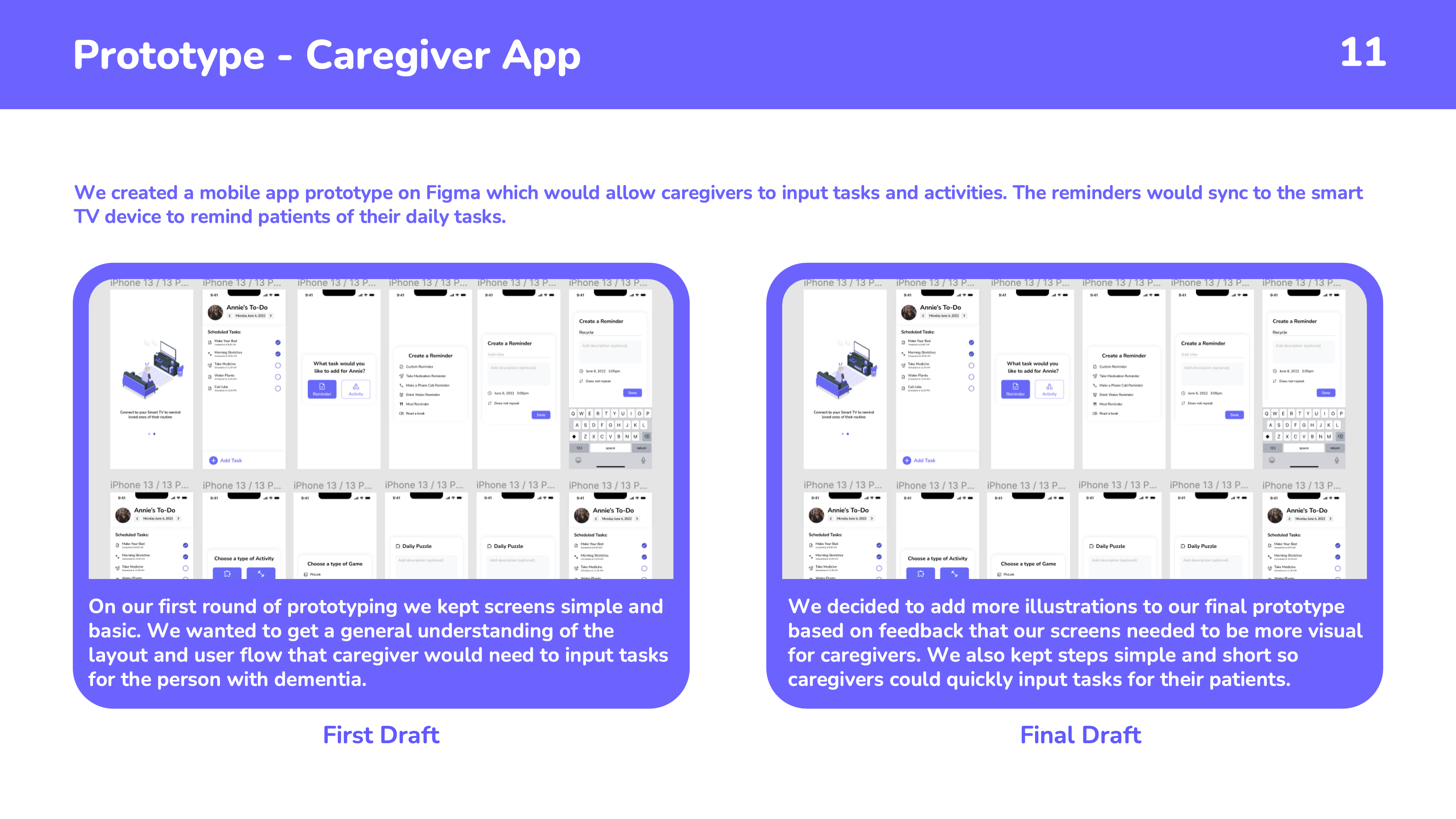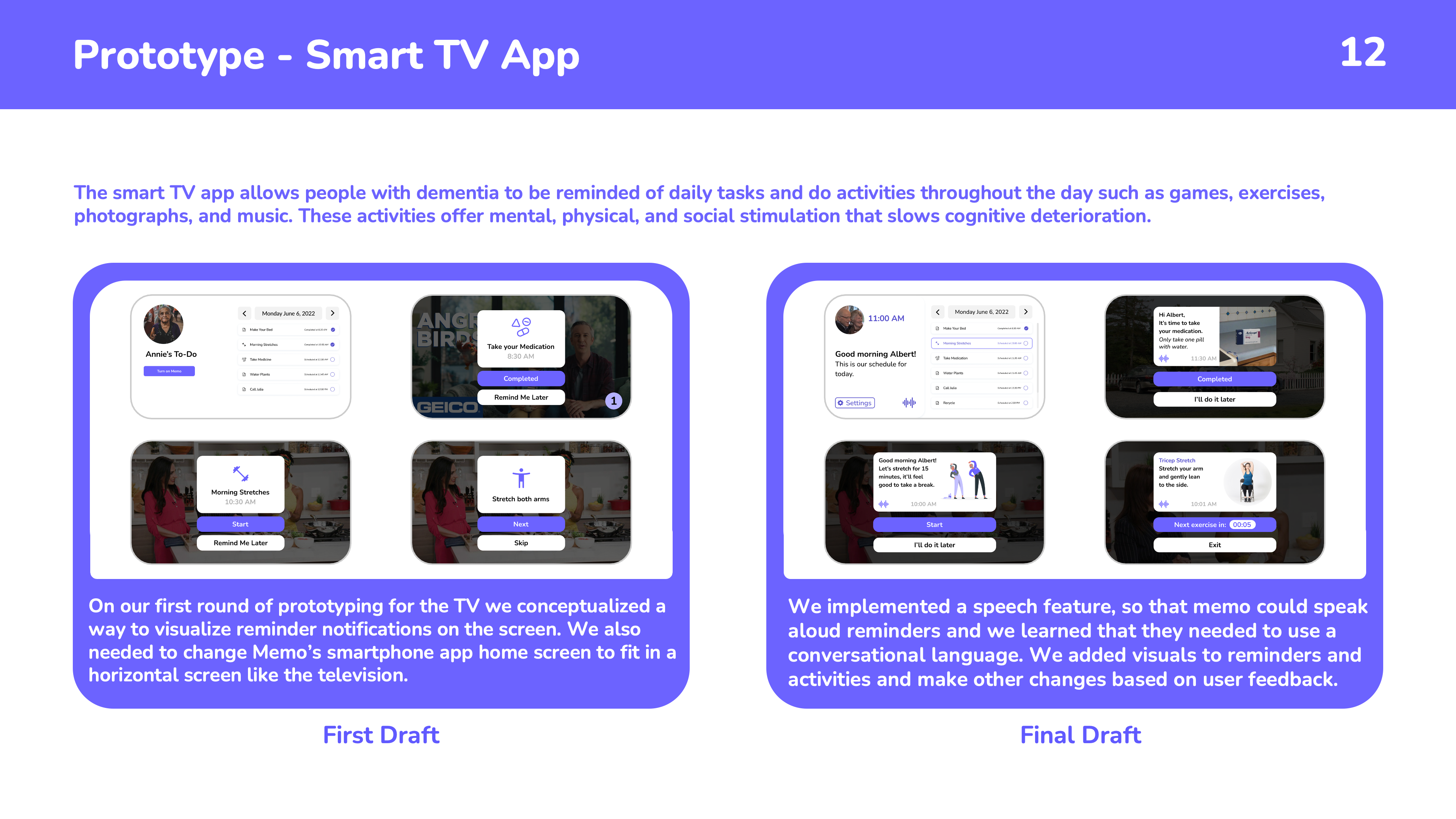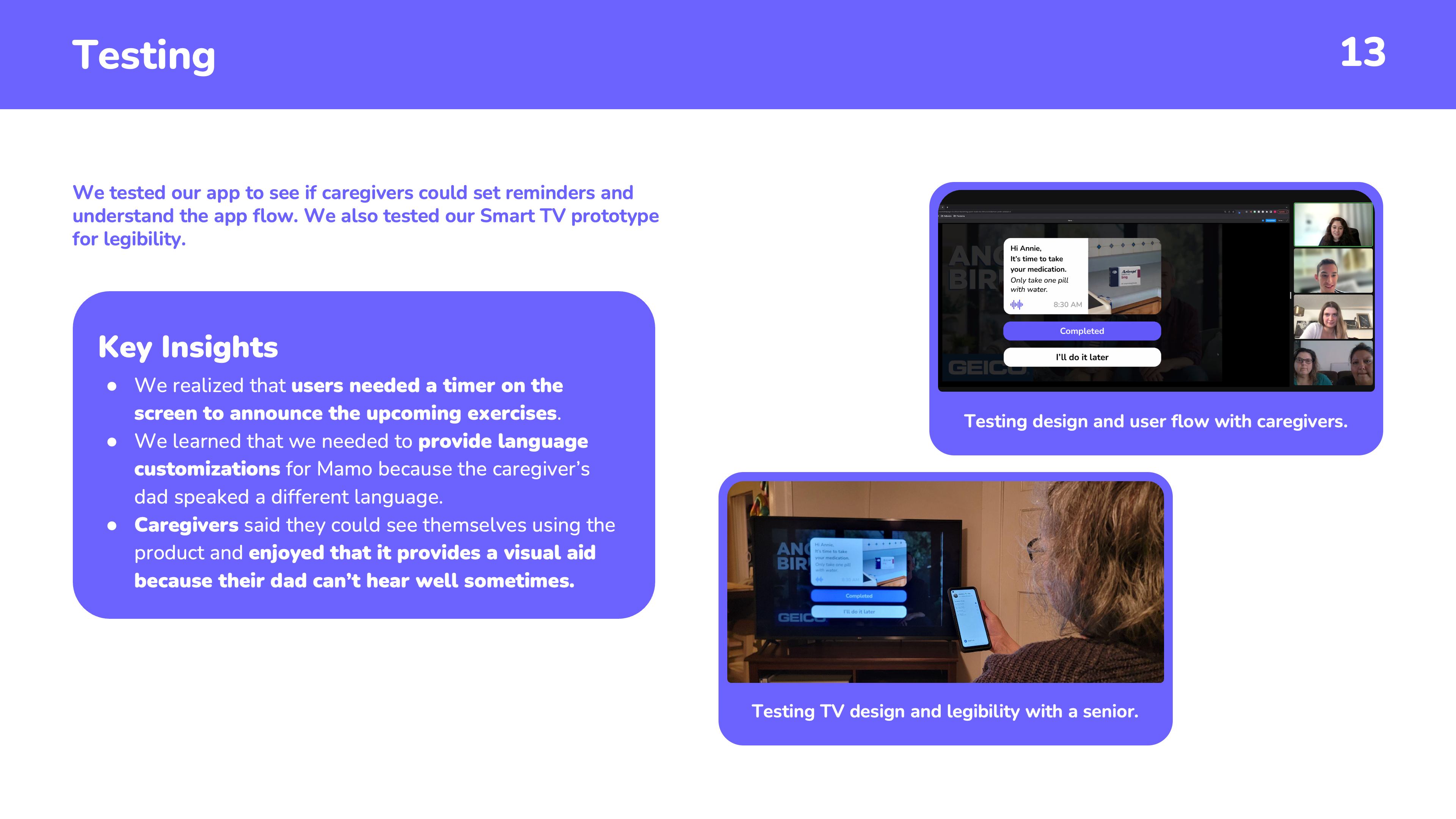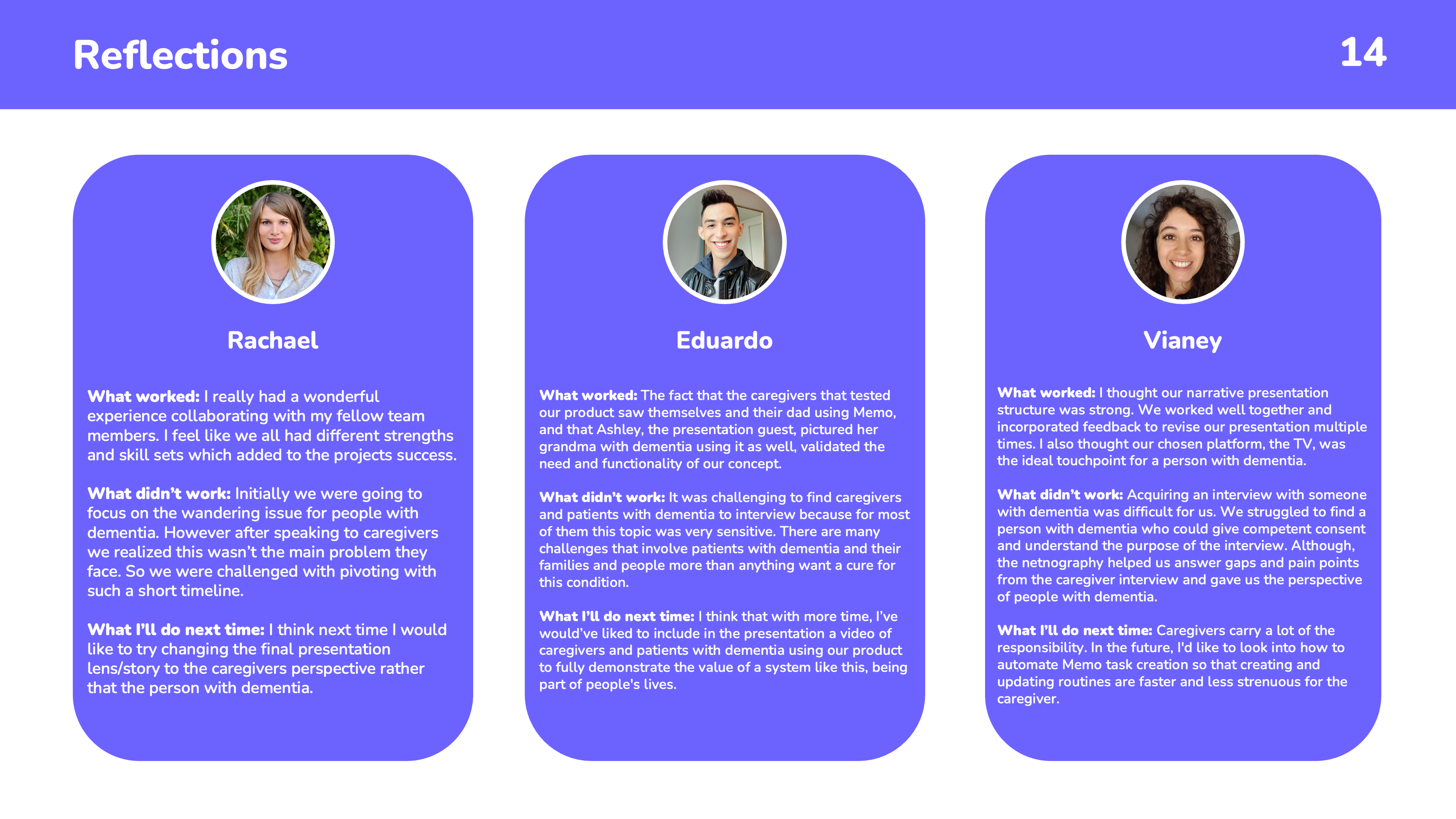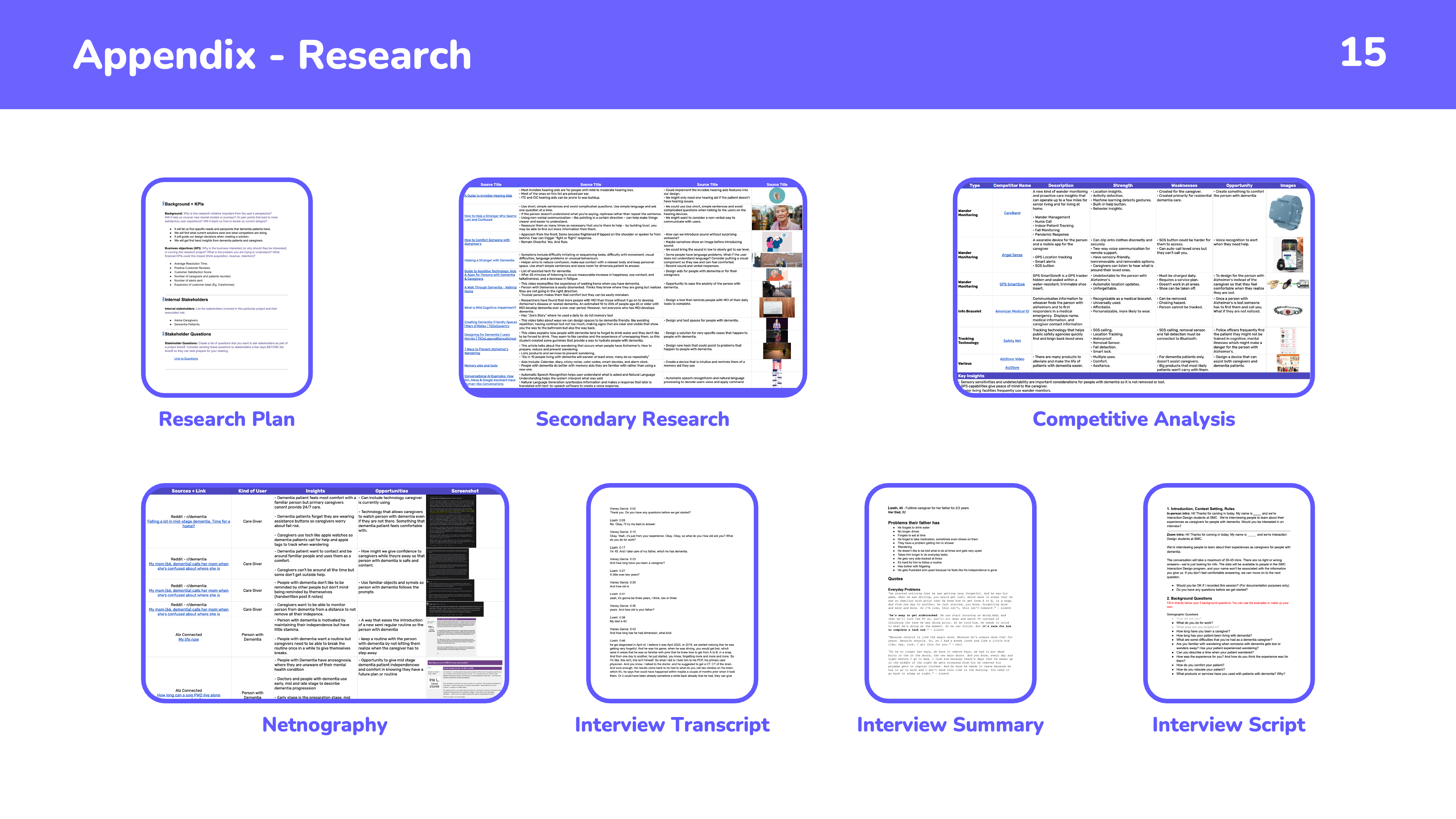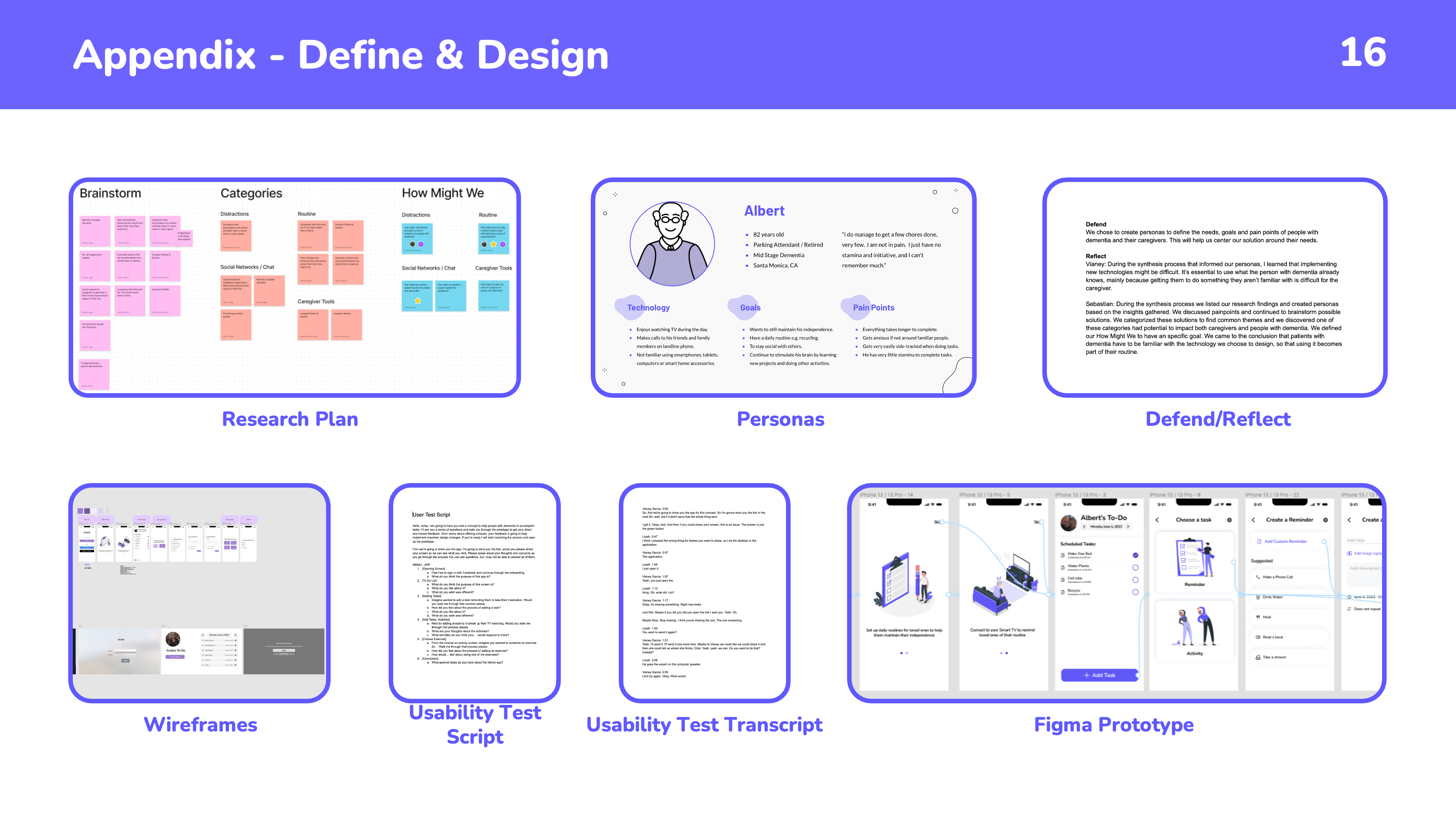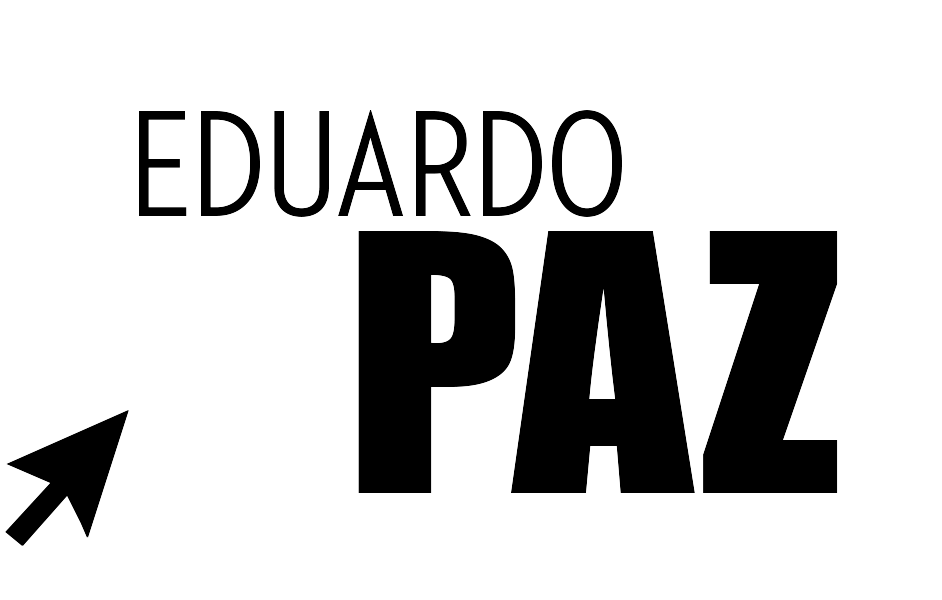Memo is a smart TV task reminder system that helps people with dementia maintain independence.
Designing and Writing with Empathy
The Memo project is particularly meaningful to me, reflecting my cherished experiences with my grandmother. She may not have faced dementia, but her commitment to maintaining her independence and staying active deeply influenced me. At the same time, I observed my mother's dedication to caregiving amidst the responsibilities of raising my brother and me, managing our home, and her work. These personal experiences gave me firsthand insight into the delicate balance required in designing technology that supports both seniors and their caregivers. This unique perspective fueled me with understanding and empathy, which I carried into the design of Memo. I believe this project would have resonated with both my grandmother and my mom. I aimed to create a product that's not just easy to use but also brings joy and eases the daily challenges faced by families like mine and of those with members with dementia.
My journey as an IT specialist, assisting users of various ages and tech comfort levels, has been instrumental in shaping my design philosophy. I've seen where even the most well-meaning designs can miss the mark for those with limitations. This understanding drove me to ensure that the UX copy and interface design for Memo were not only clear and user-friendly but also enjoyable, making the technology approachable and practical.
I view Memo as a prime example of how UX principles must be rooted in genuine user needs and experiences. It stands as a testament to the power of blending technical expertise with empathetic design to create solutions that not only meet but exceed user expectations.
Role: UX Writer, UX Designer, Graphic Designer, Design Researcher, Project Manager.
Memo is a smart TV task reminder system designed to strengthen the independence of dementia patients. Many seniors over 65, including those with dementia, spend almost a fourth of their day watching the TV., Memo integrates seamlessly into their routine. This innovative app enables caregivers to set reminders and routines for their loved ones, facilitating monitoring from a distance. Reminders are prominently displayed on the TV screen until they are acknowledged or postponed, with caregivers receiving instant updates via the Memo smartphone app.
Importantly, Memo addresses a critical aspect of dementia care: the need for patients to feel a sense of independence. Being constantly told what to do by caregivers can become a source of frustration, especially when instructions are delivered in an unintended tone. Memo empowers patients by allowing them to feel in control and capable of managing tasks on their own, thereby reducing reliance on direct intervention. This approach not only fosters a better sense of autonomy but also enhances the caregiving experience by enabling caregivers to support their loved ones effectively while respecting their need for independence. By setting activities that offer mental, physical, and social stimulation, Memo also contributes to slowing cognitive decline, making it an invaluable tool in dementia care.
UX Challenges
Designing the Memo app presented unique UX challenges, requiring a delicate balance between accessibility and empowerment for both people with dementia and their caregivers. The goal was to create an intuitive and supportive digital environment that addresses the specific needs of its users. Here are some of the key challenges we navigated:
• Employing language that users with cognitive difficulties could understand easily.
• Giving the platform a warm and positive tone.
• Using visuals and simple UI to guide people with dementia.
• Keeping people with dementia on track while respecting their autonomy.
• Allowing caregivers to easily plan.
• Give caregivers peace of mind without having to actively monitor their loved ones with dementia.
Addressing these challenges was crucial in developing an app that not only meets the practical needs of its users but also enhances their quality of life by promoting independence and providing support in a respectful and empowering manner.
Patient Reminders
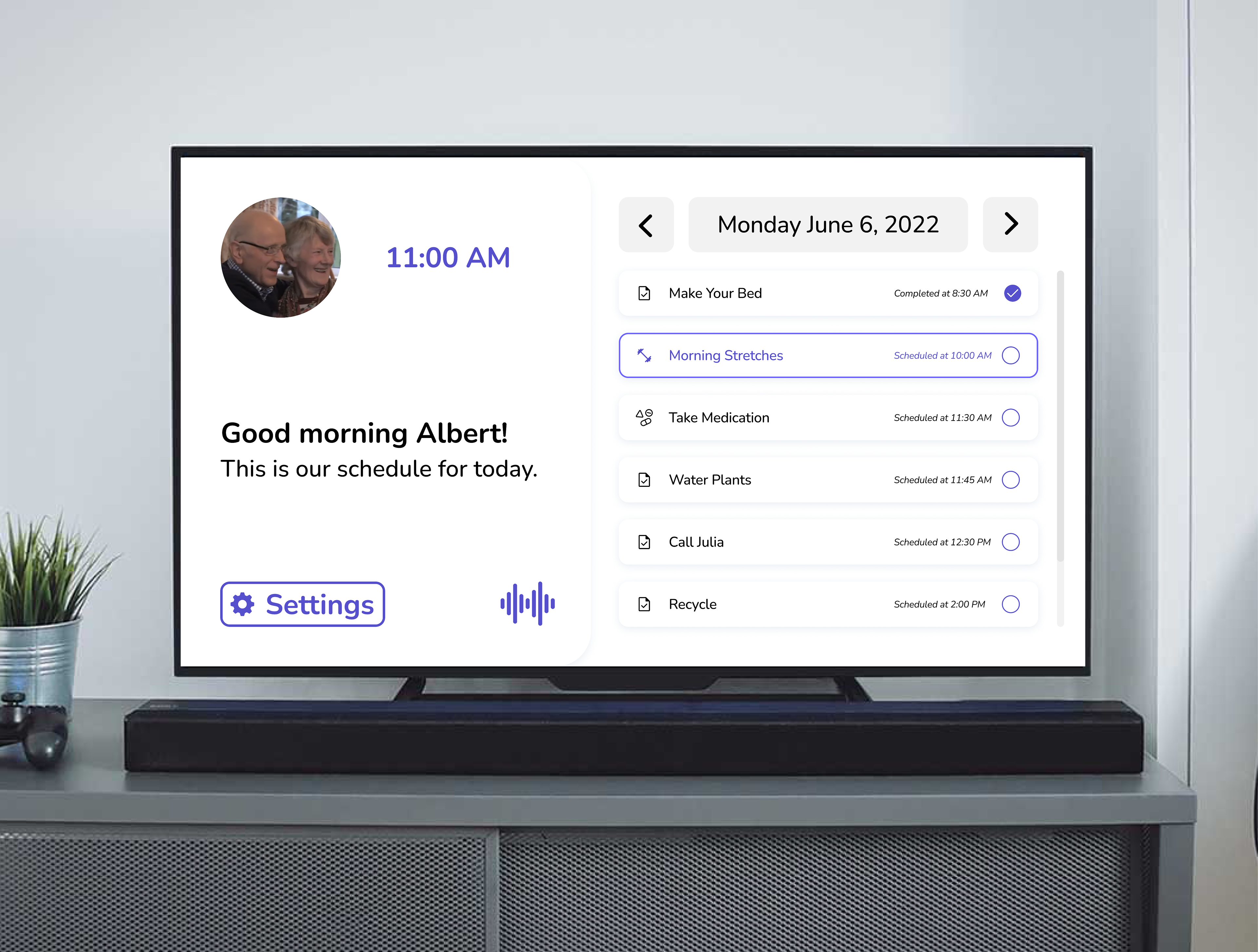
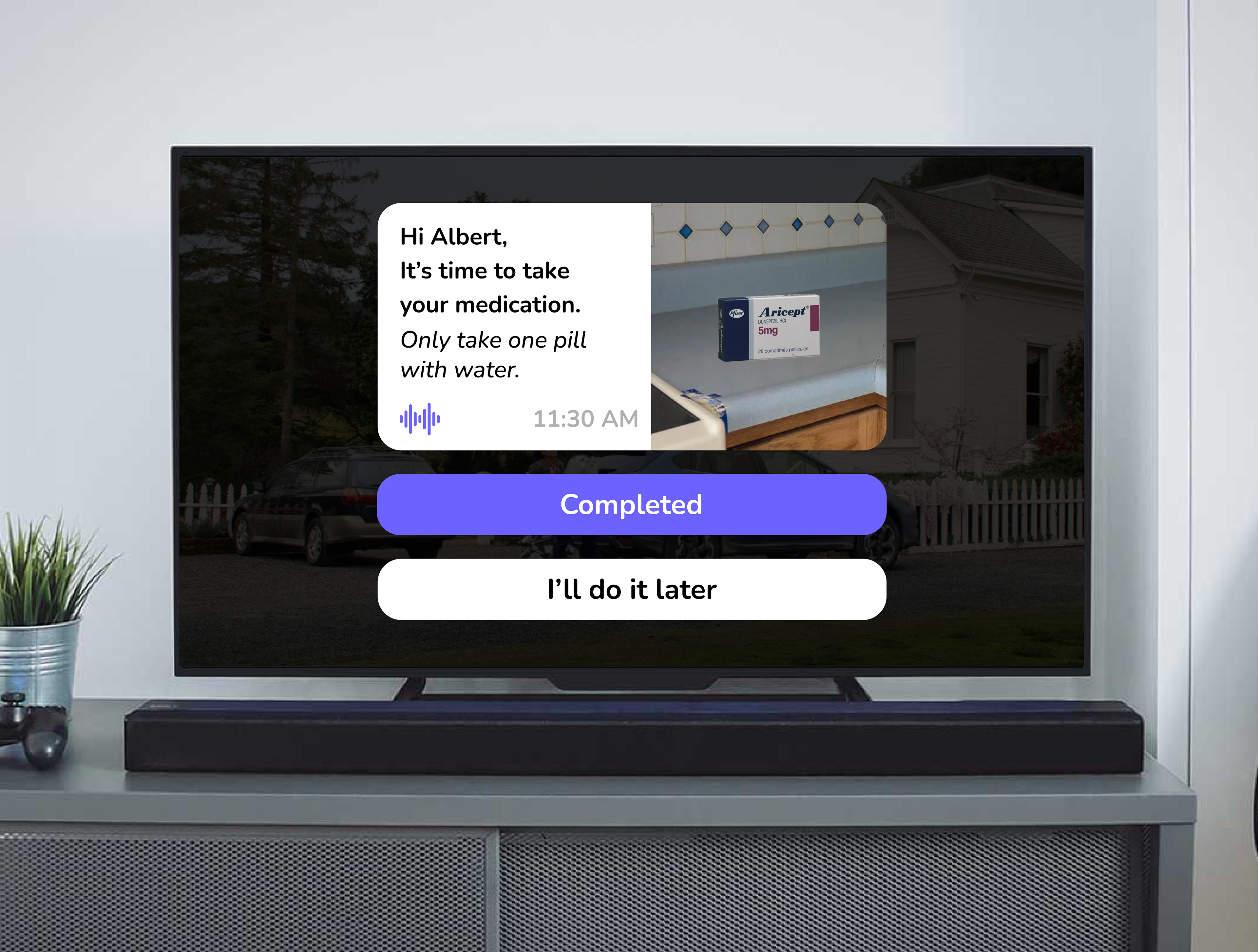
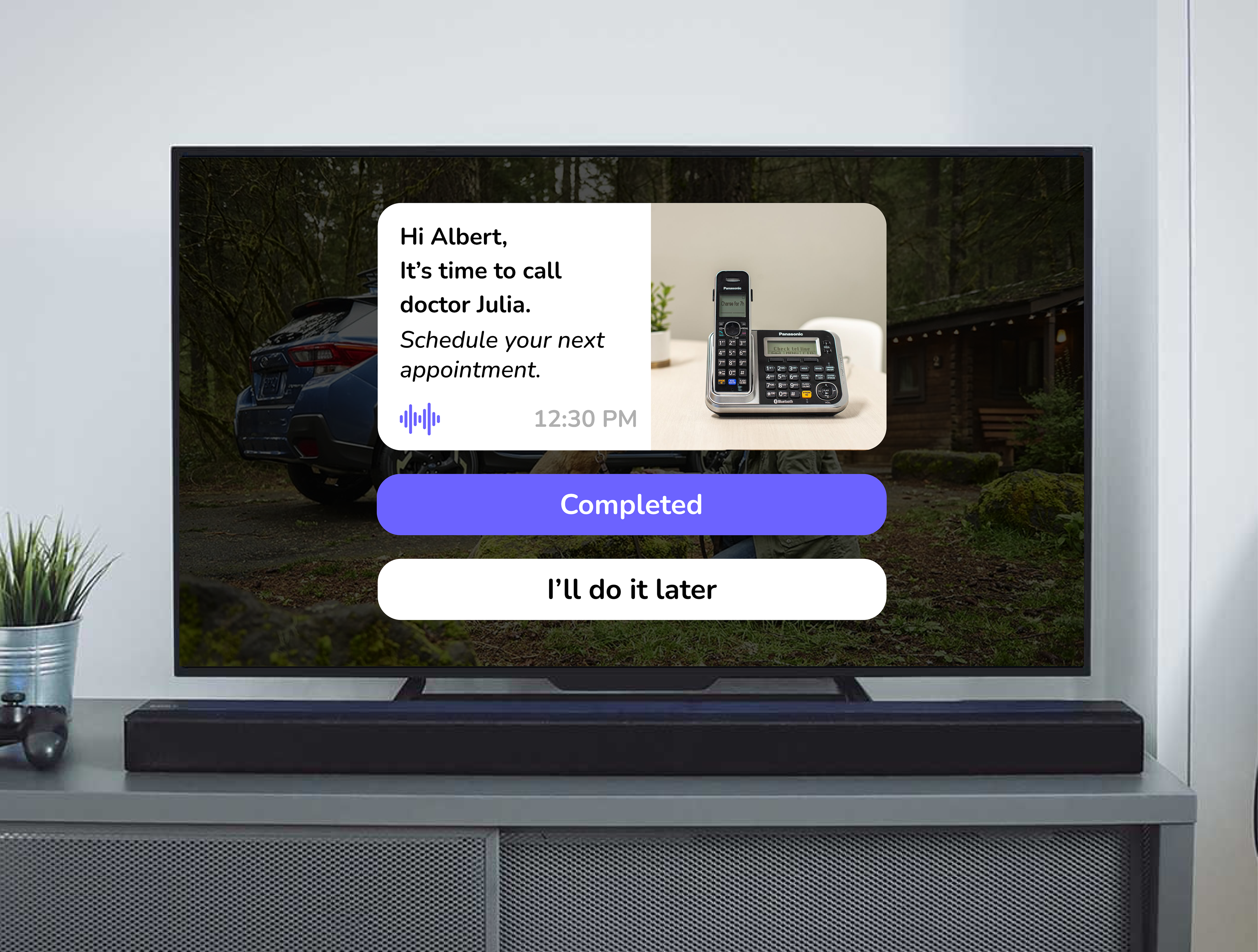
The reminders feature in the Memo TV app is meticulously designed to integrate effortlessly into the routine of dementia patients, ensuring a supportive and intuitive user experience. Displayed on their TV screens, it offers a clear overview of the day's activities, with several key aspects such as:
• Seamless Integration: Reminders pause or mute current programming to gently alert patients.
• User-friendly Design: Provides an easy-to-navigate overview of daily activities.
• Autonomy and Choice: Patients can complete tasks at their convenience or choose to be reminded later.
• Personal Touch: Caregivers can add images to reminders, enhancing familiarity and comfort for their loved ones with dementia.
• Supportive Tone: Crafted to be friendly and inviting, promoting a sense of independence without feeling pressured.
This approach not only respects the autonomy of dementia patients but also makes the caregiving process more manageable and less intrusive through thoughtful design and functionality.
Patient Activities

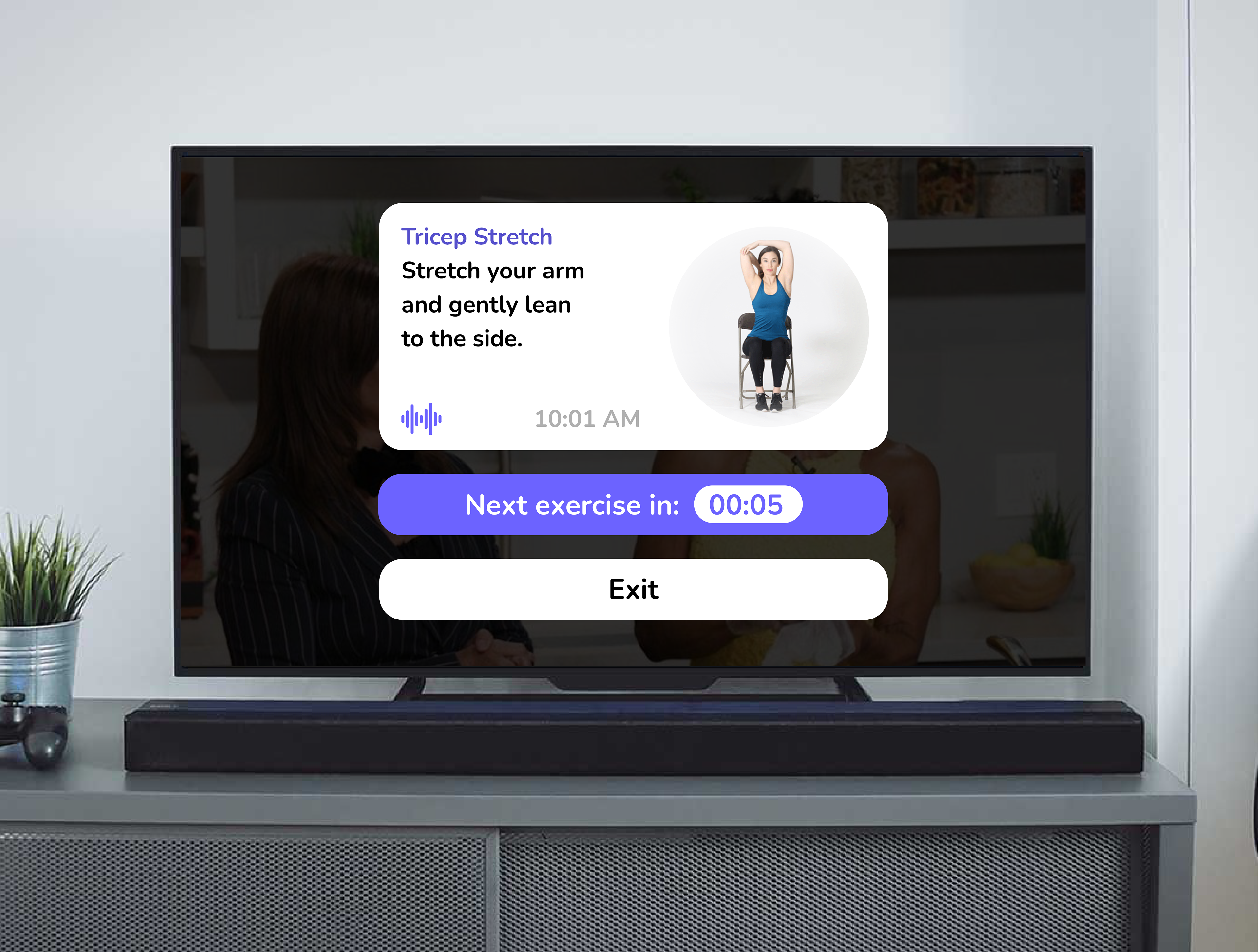
Within the Memo app, activities are designed to offer people with dementia a blend of mental, physical, and social stimulation, all from the comfort of their living room. Each activity is crafted to be engaging, straightforward, and welcoming, ensuring that users feel both supported and independent. Here are key features and elements:
• Engaging Content: Activities range from cognitive exercises to gentle movements, tailored for mental, physical, and social benefits.
• Inclusive Design: Options to have activities and reminders read aloud cater to all users, with the flexibility to toggle this feature off.
• Personal Autonomy: Patients can choose when to engage, offering them control over their participation.
• Minimized Intrusion: Activities are kept concise to respect the daily routines and preferences of patients.
This approach ensures activities are both engaging and respectful of patients' needs and preferences.
Memo App for Caregivers
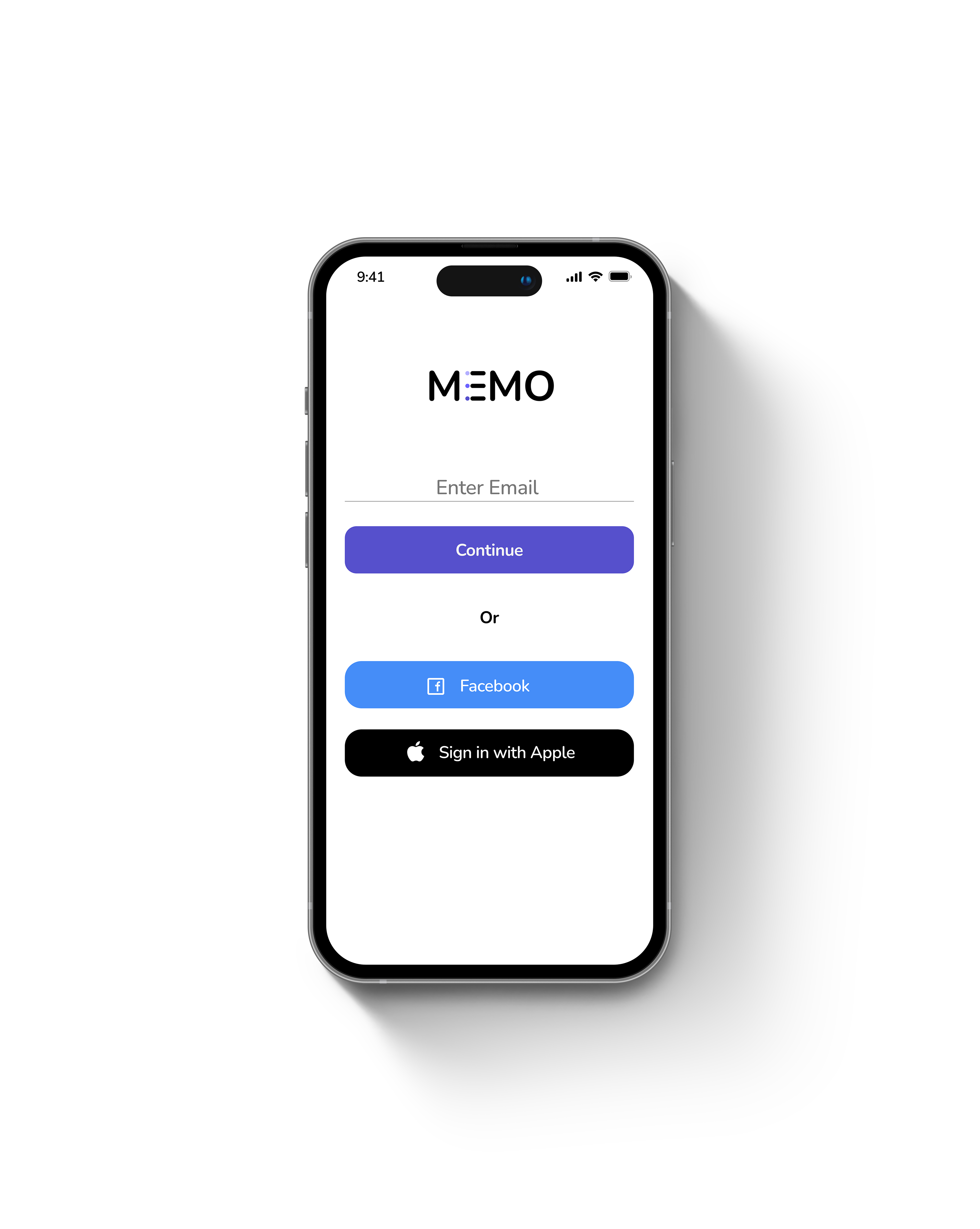
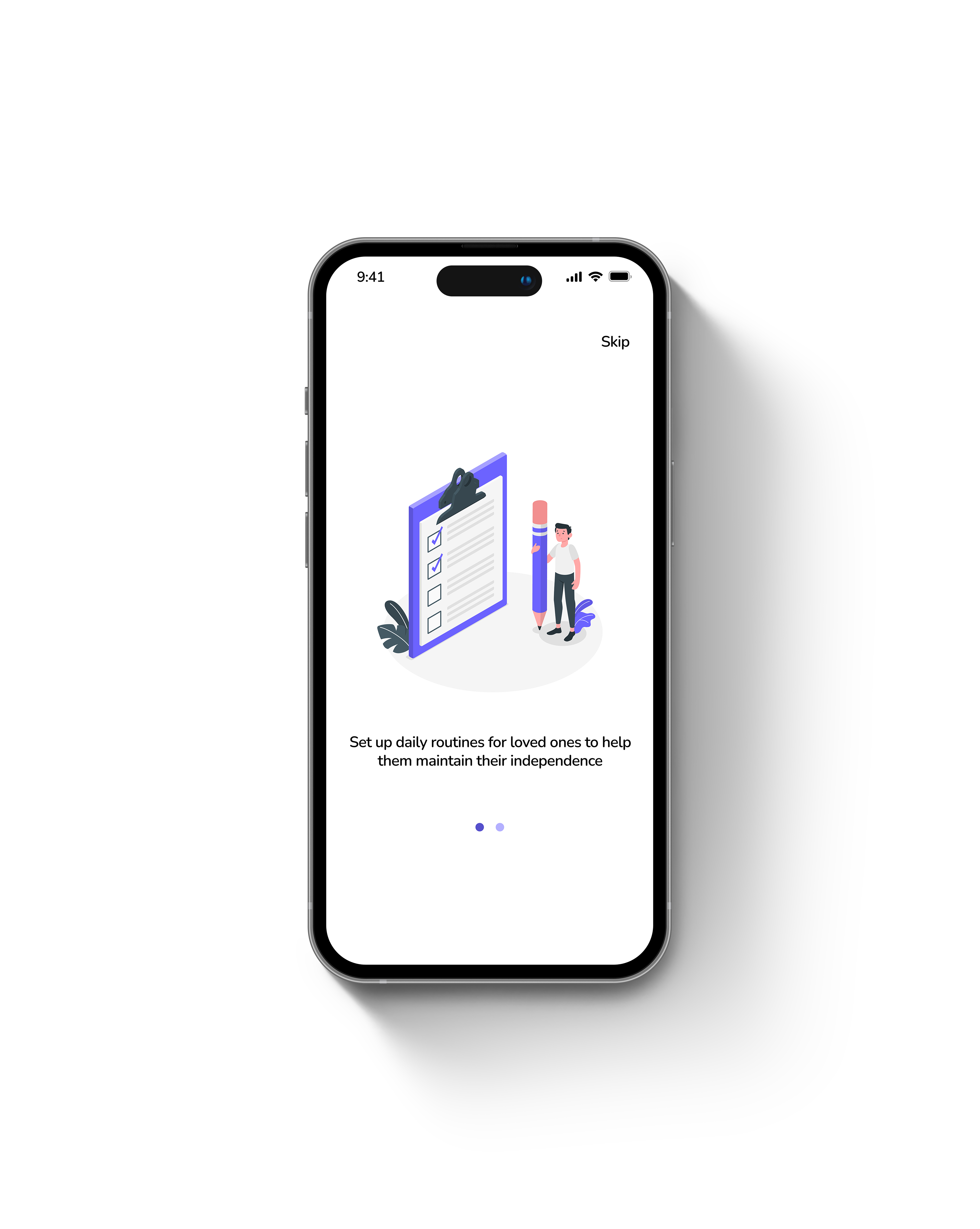
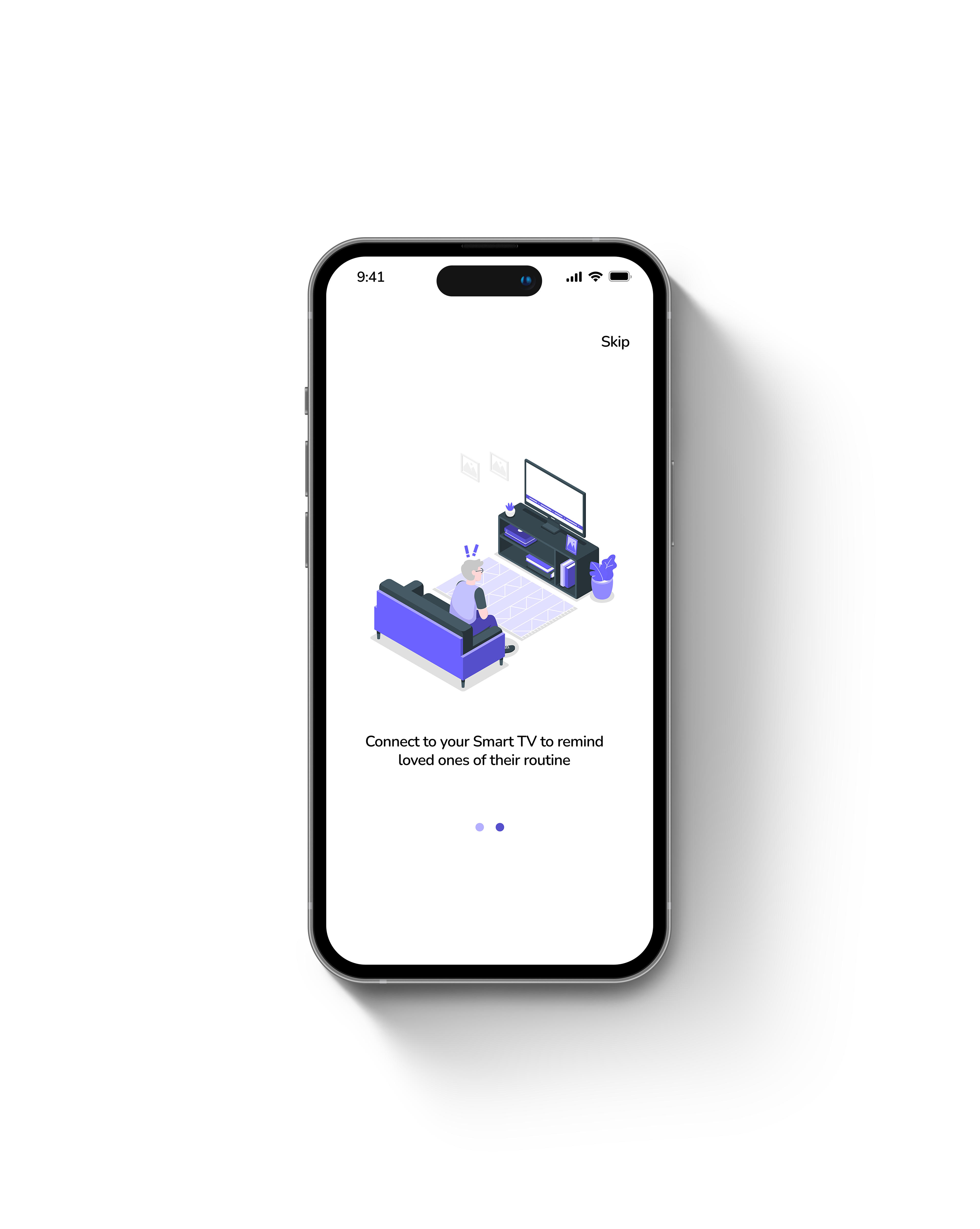
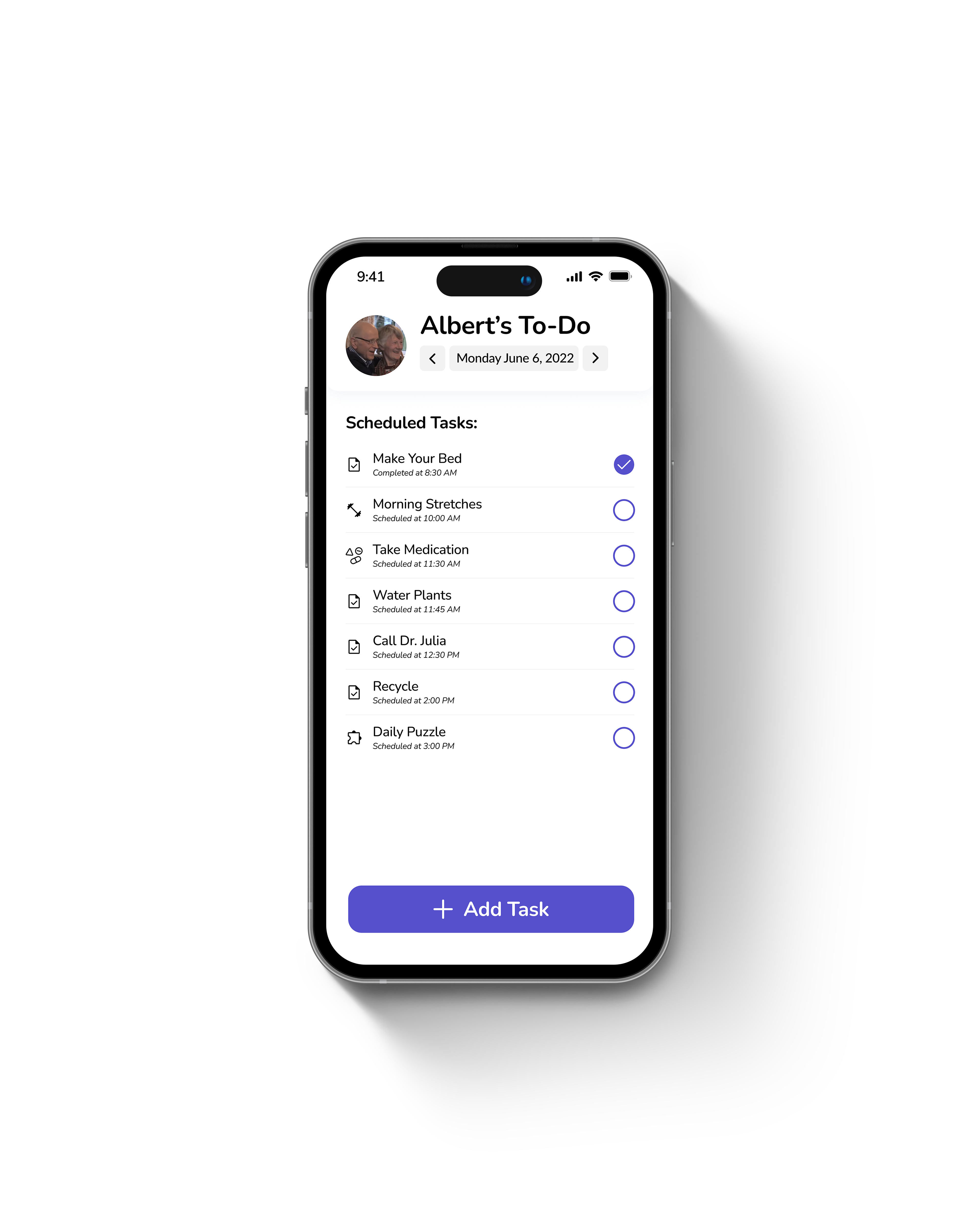
The Memo TV app is complemented by the mobile app for caregivers, featuring a straightforward interface for easy setup of reminders and activities. It's crafted with an understanding of the preferred communication styles for individuals with dementia and acknowledges the caregiver's need to balance their duties with personal commitments. Here are the key aspects that address UX challenges:
• Simple Interface: Enables quick setup of reminders and activities.
• Empathetic Design: Acknowledges both patient and caregiver needs.
• Timely Notifications: Keeps caregivers informed without constant oversight.
• Fosters Independence: Allows patients to feel self-reliant while under care.
This strategy ensures caregivers can provide thoughtful support efficiently, promoting a nurturing environment that respects the independence of their loved ones.
Set Reminders as a Caregiver
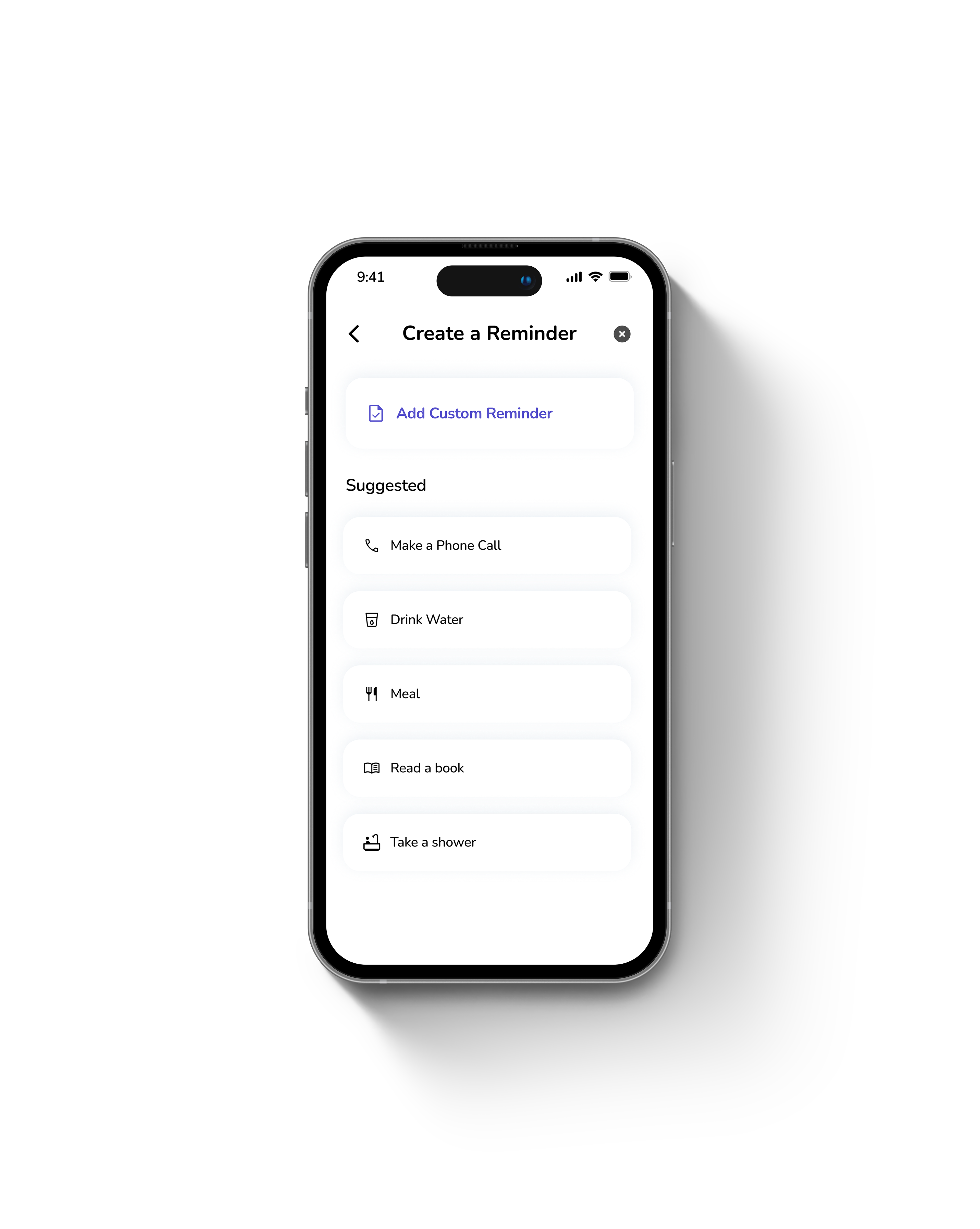
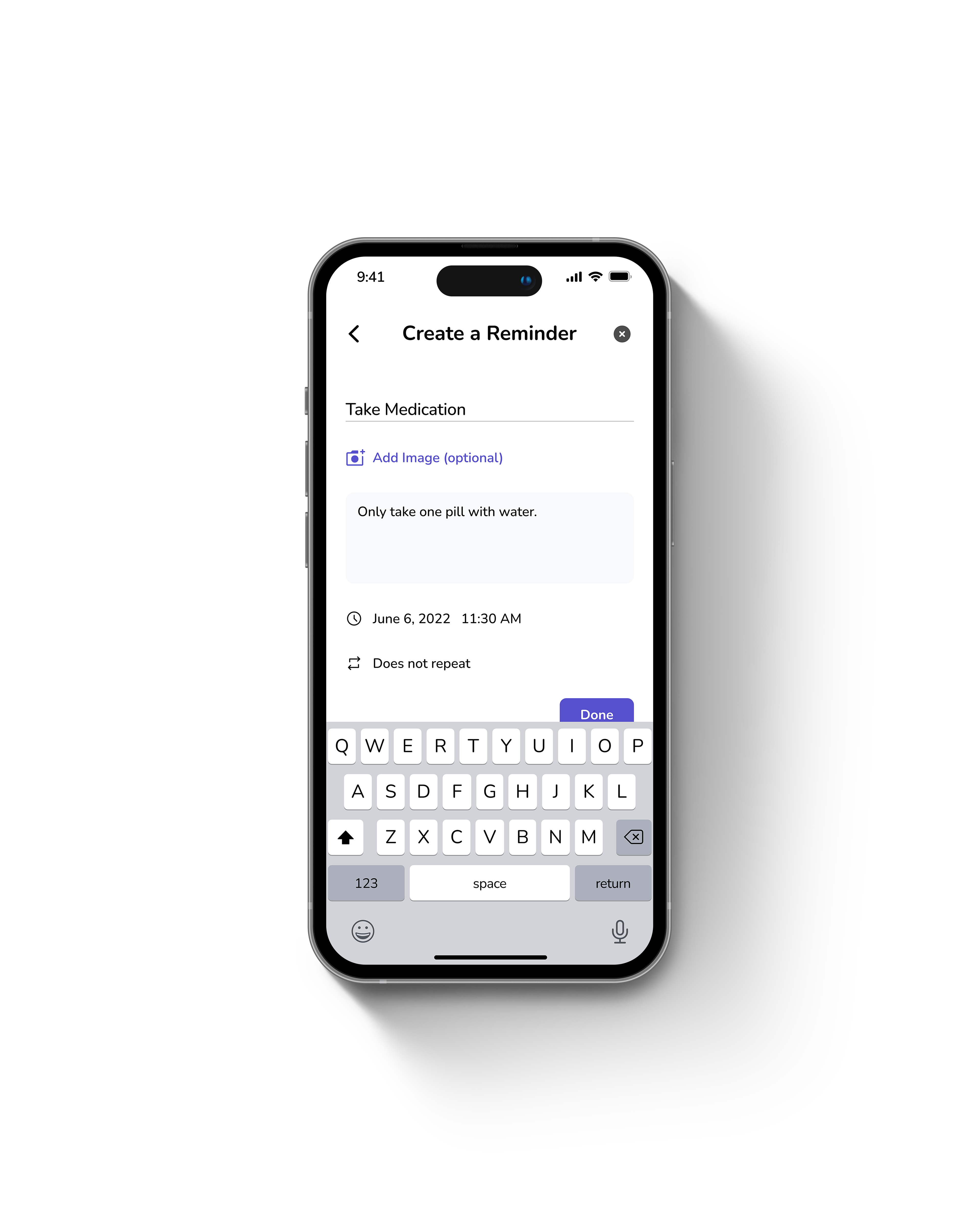
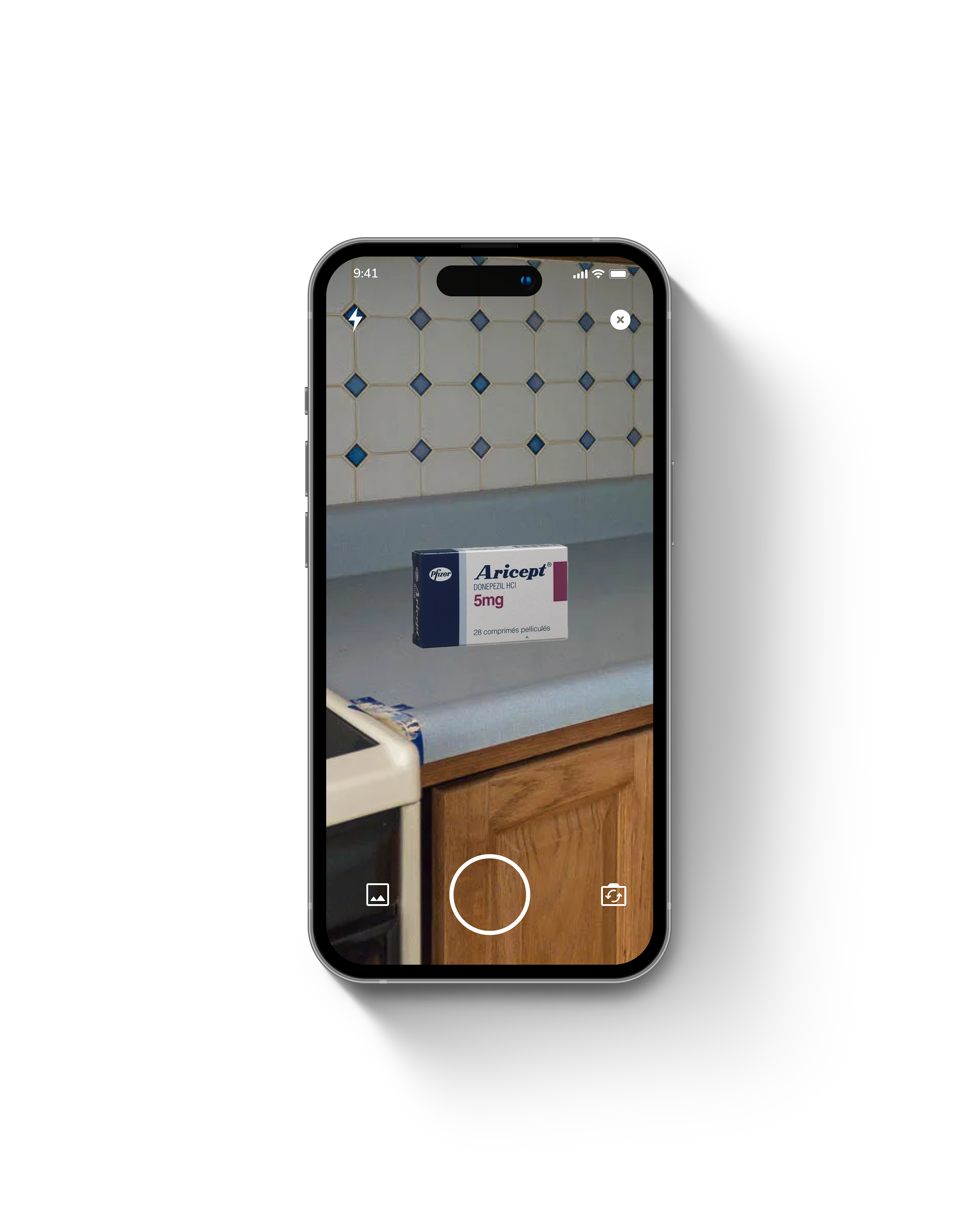
The setting reminders function in the Memo mobile app is thoughtfully designed to ease the caregiving process. It highlights the importance of daily routines, like hydration, by enabling the scheduling of vital reminders and enriching the experience with smart suggestions. Here's how it addresses UX challenges:
• Intelligent Suggestions: Learns from set reminders to offer customized suggestions.
• Personal Touch: Allows attaching photos to reminders for a familiar feel.
• Simplified Process: Makes supporting loved ones straightforward for busy caregivers.
This approach ensures that caregivers can offer meaningful support seamlessly, enhancing the caregiving experience with a blend of technology and personalization.
Set Activities as a Caregiver
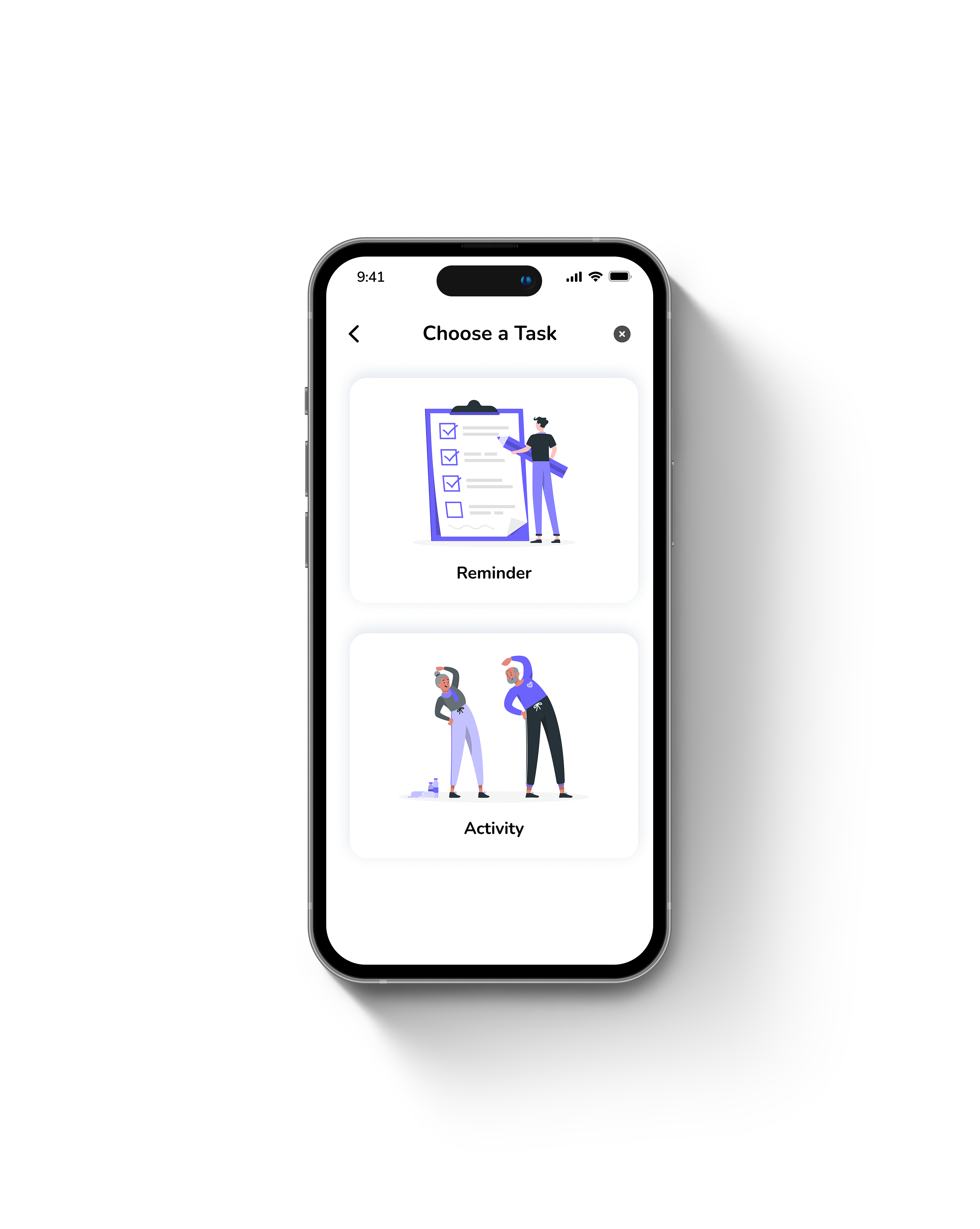
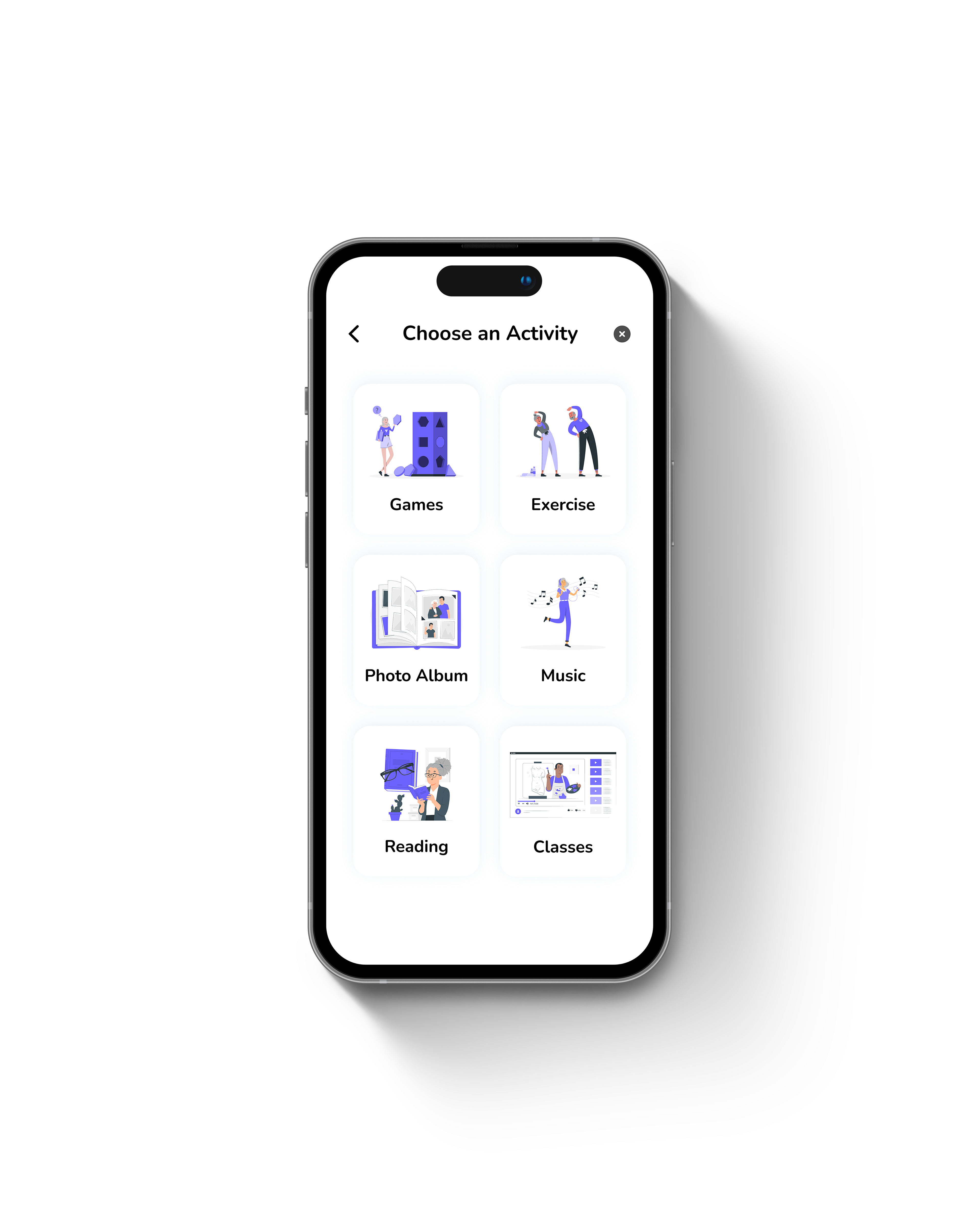
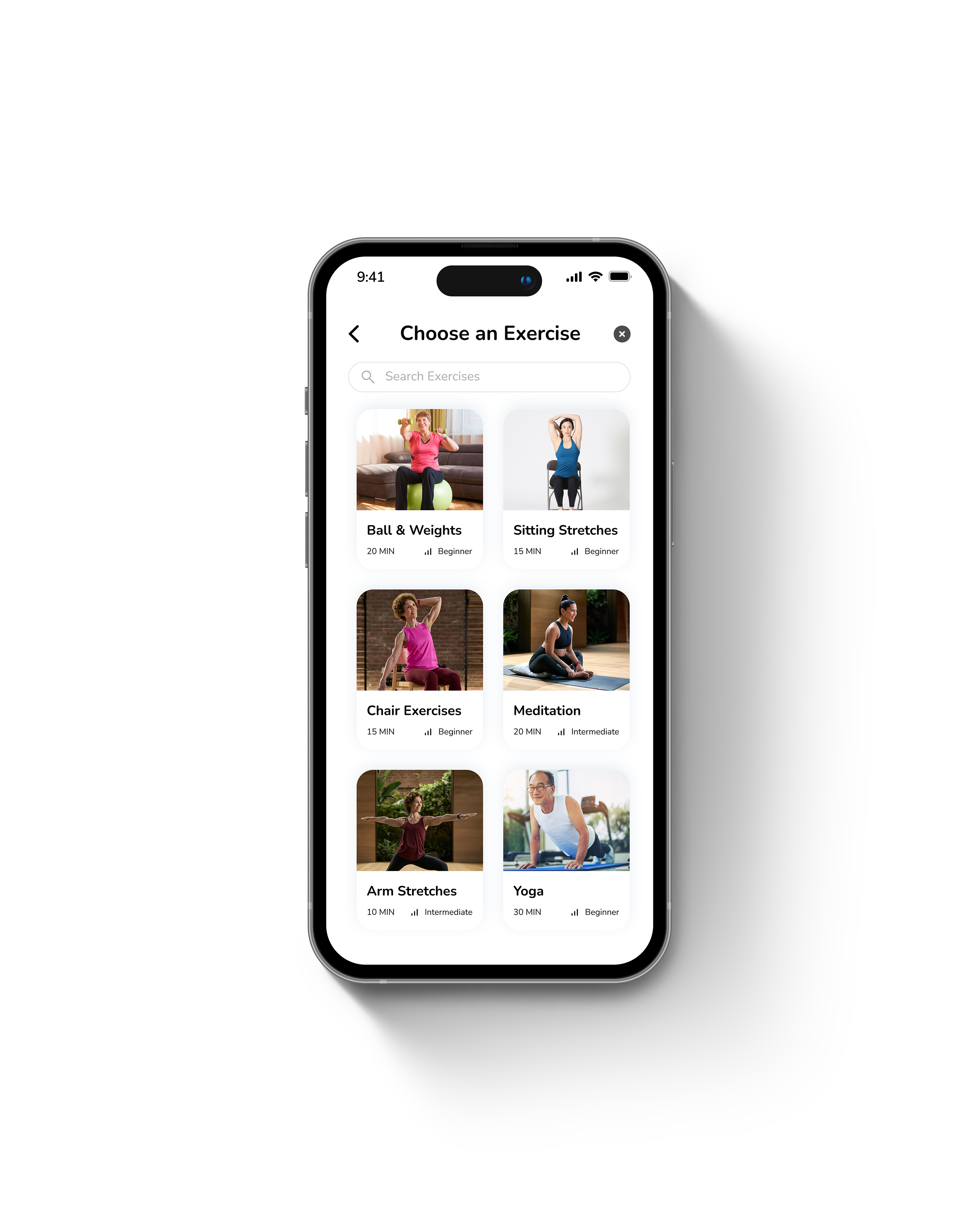
The set activities feature in the Memo mobile app allows caregivers to diversify their loved ones' daily routines with stimulating activities. It supports mental, physical, and social engagement, key to slowing cognitive decline. Here's how it addresses UX challenges:
• Flexible Scheduling: Caregivers can adjust the duration of activities to fit daily schedules.
• Customized Selection: Activities cater to the varied interests and needs of individuals.
• User-Friendly Interface: Offers clear visuals and information for easy decision-making.
This design ensures caregivers can easily introduce meaningful activities, improving the well-being of those with dementia.
Style Guide
The Memo app's style guide is meticulously crafted to accommodate the unique needs of its users, particularly those with dementia. Here’s a snapshot of our design philosophy:
• Color Choice: We've selected shades of purple, a color widely associated with dementia awareness, to serve as comforting and familiar visual cues within the app.
• Typography: Nunito, a font known for its rounded edges, conveys a sense of warmth and friendliness, easing readability for users.
• Button Sizing: Understanding the challenges some seniors may face, we've incorporated large buttons to enhance visibility.
• Contrast & Clarity: High contrast between text and background ensures maximum legibility for all users.
• Unified Palette: Our color palette is deliberately woven through the interface and illustrations to create a cohesive visual experience.
• TV vs. Mobile: Different font sizes and interface simplicity were critical in adapting the app for TV, ensuring clarity and ease of interaction.
• Tone Consistency: Across all elements, a friendly and supportive tone is maintained to foster a positive user experience for both dementia patients and caregivers.
Every design choice in the Memo app is intentional, aligning with our goal to create an accessible, comfortable, and empowering environment for those it serves.
Continue scrolling to review the full case study...
